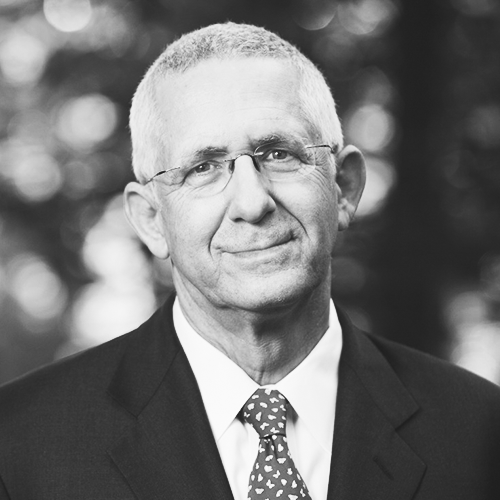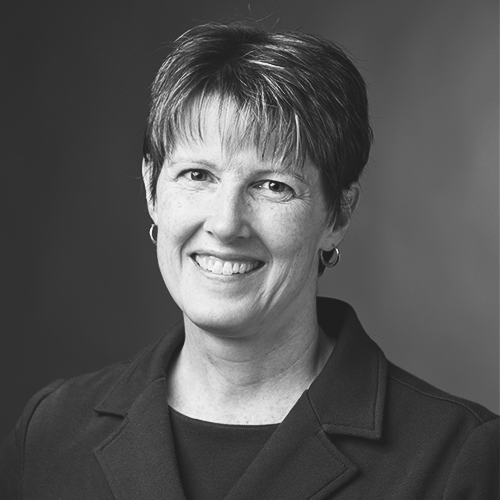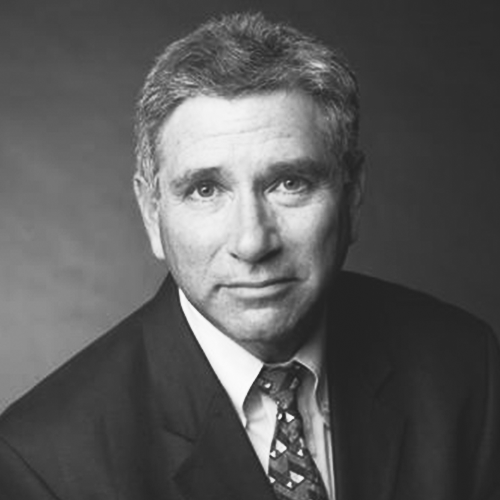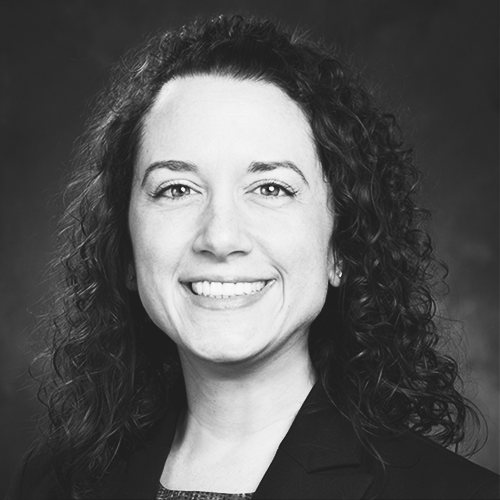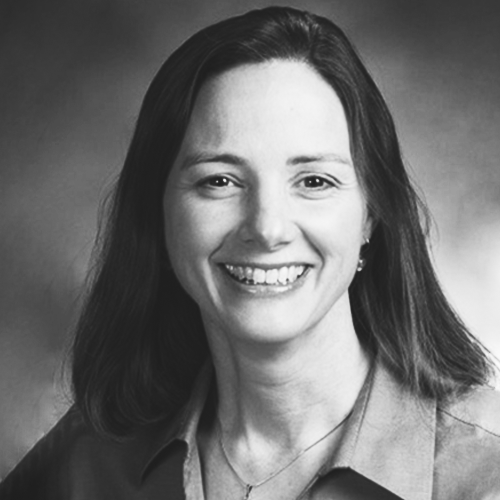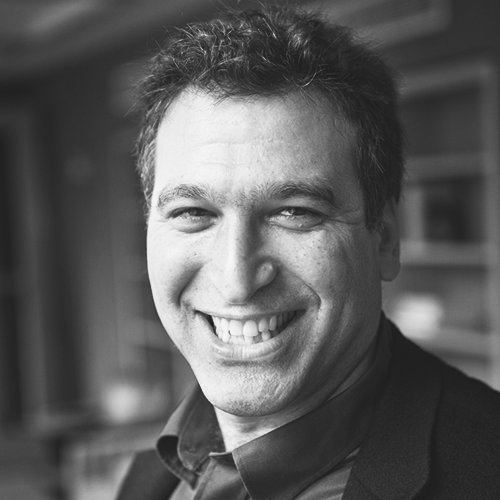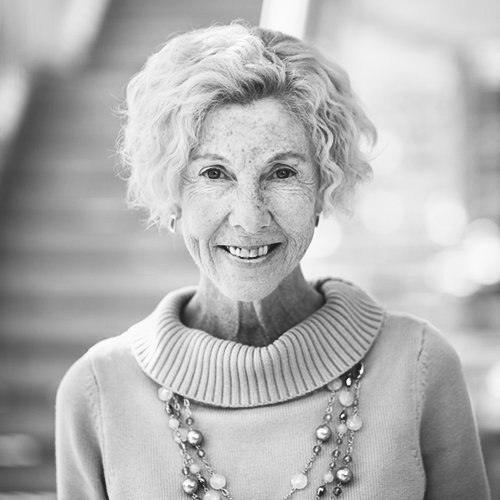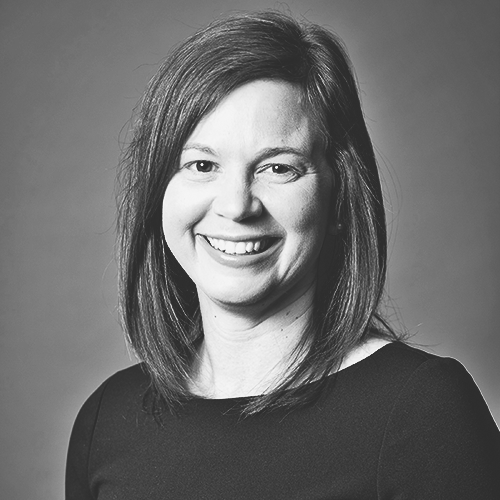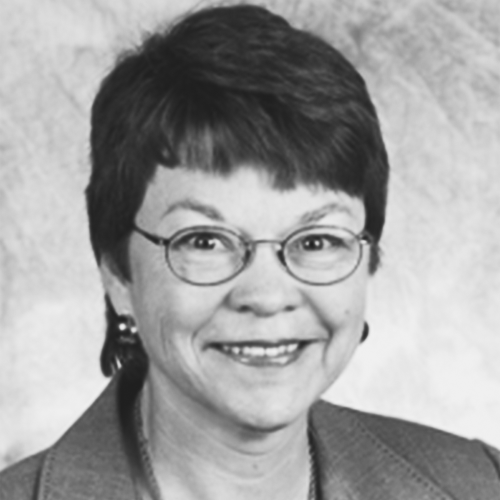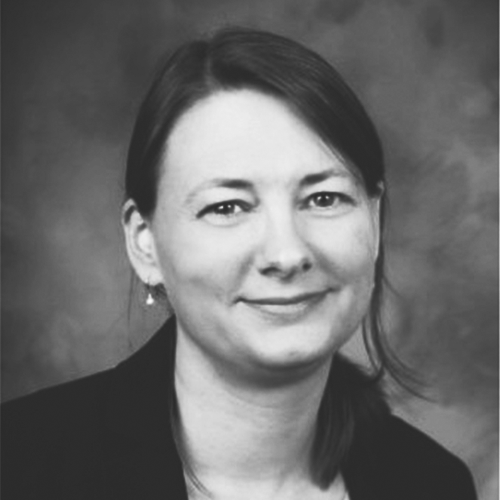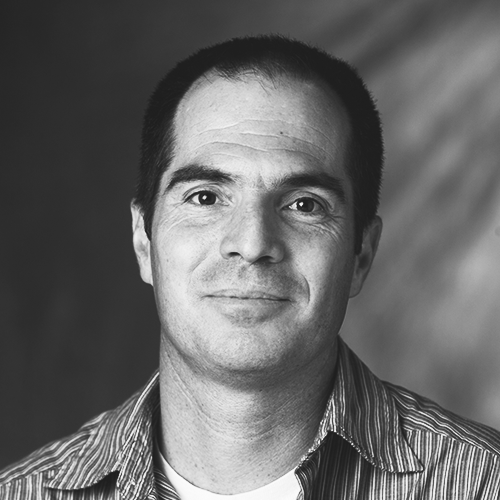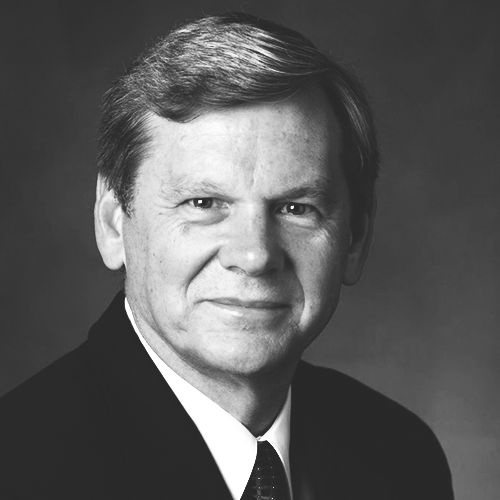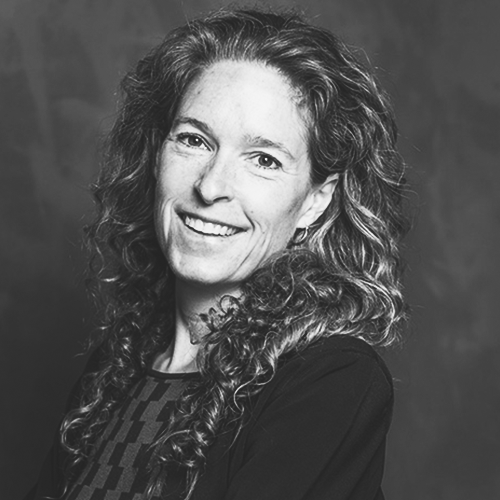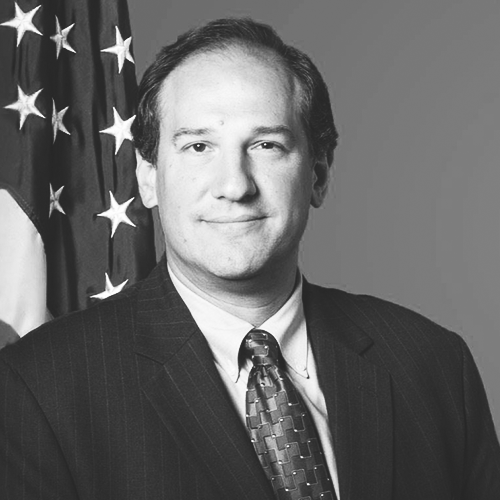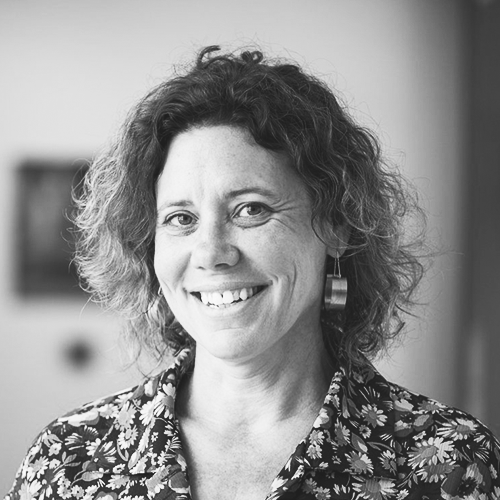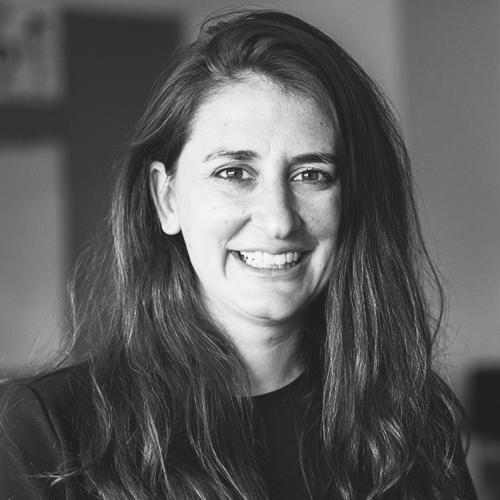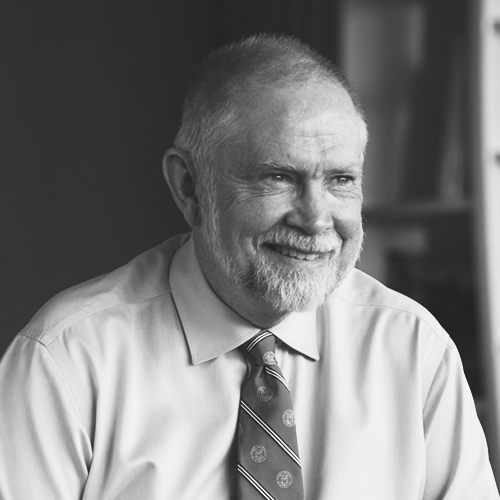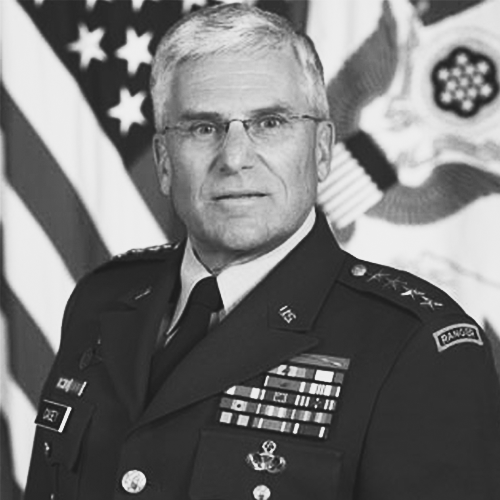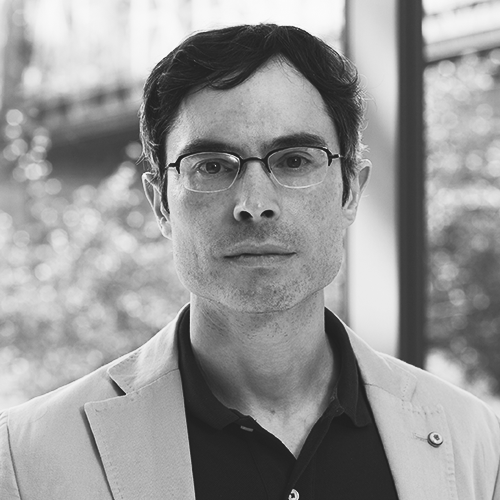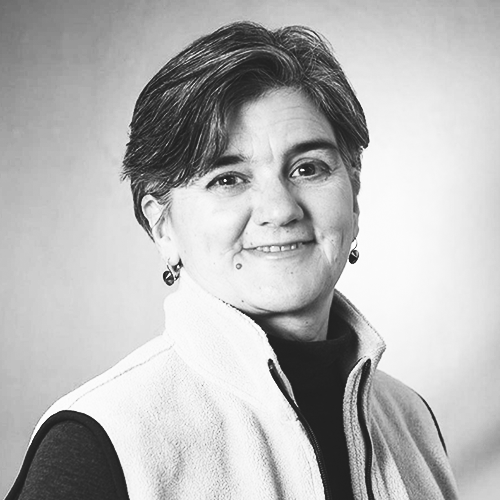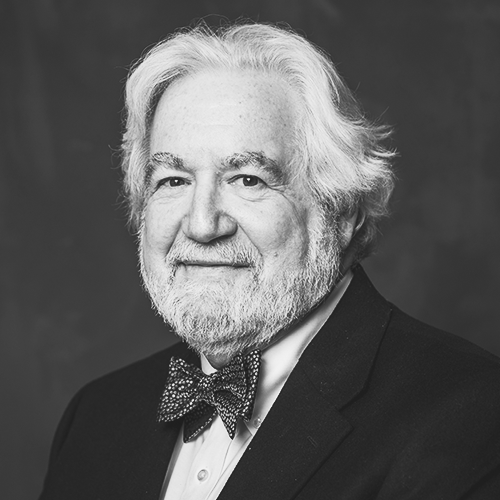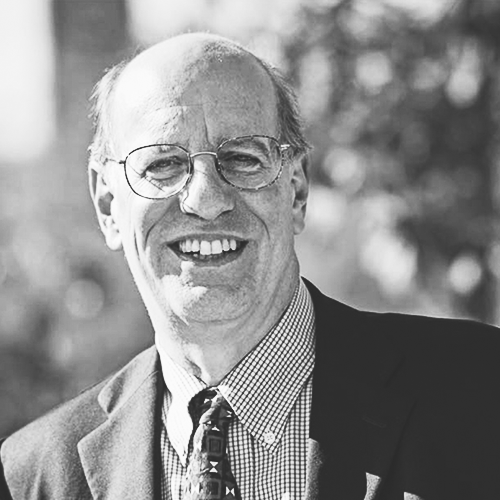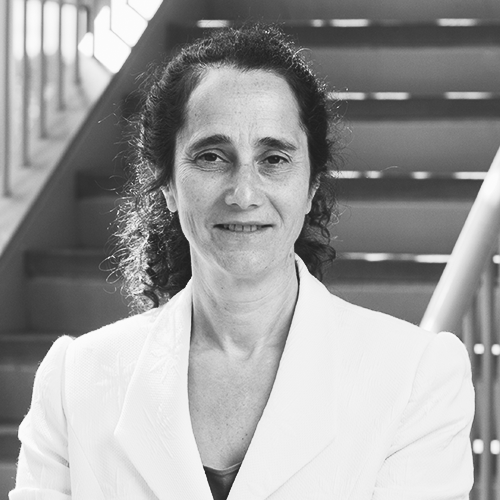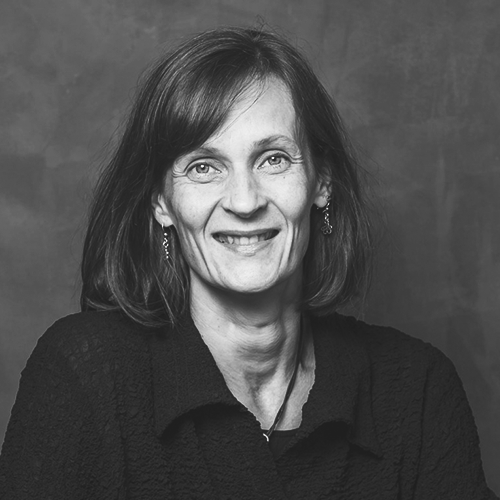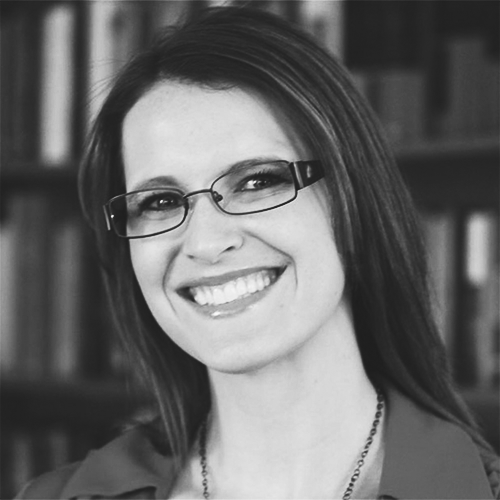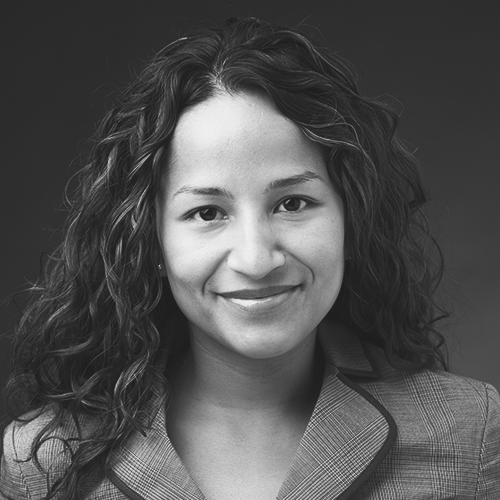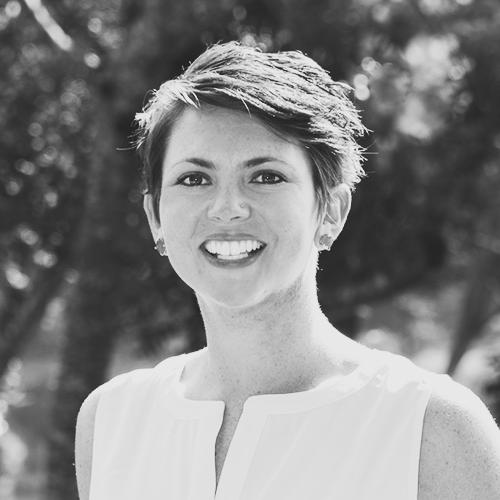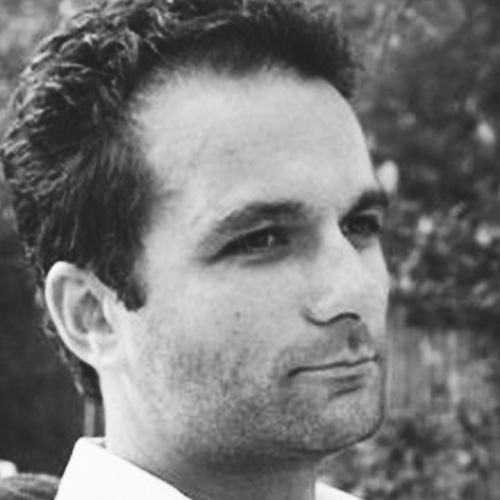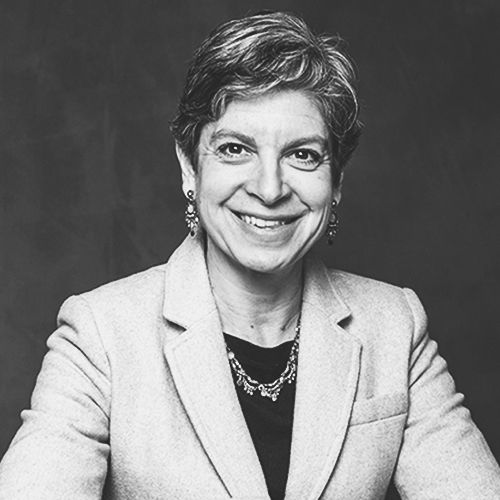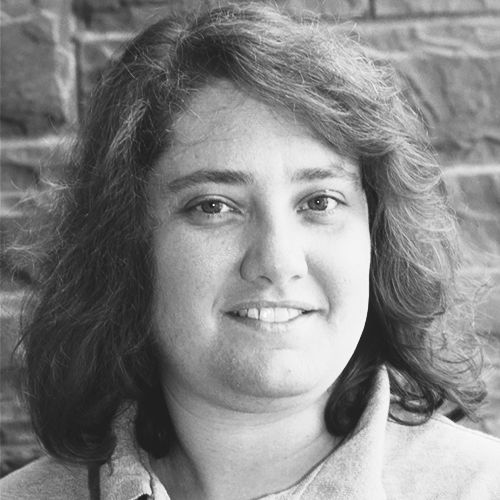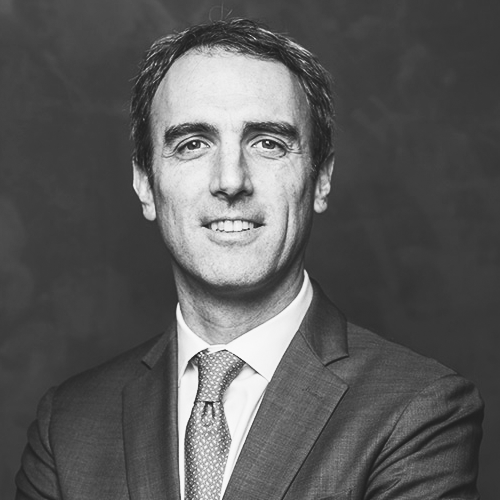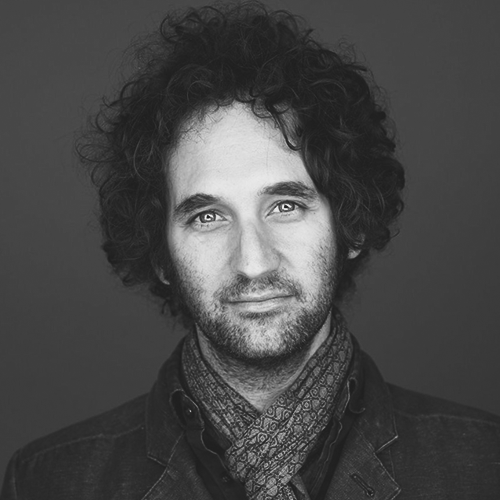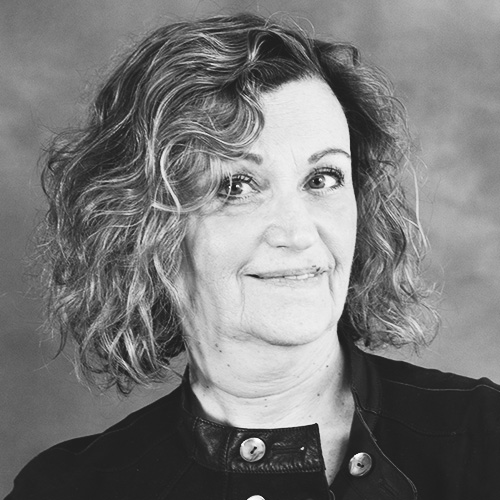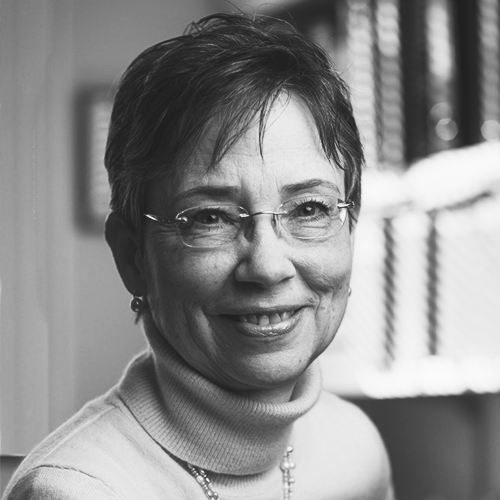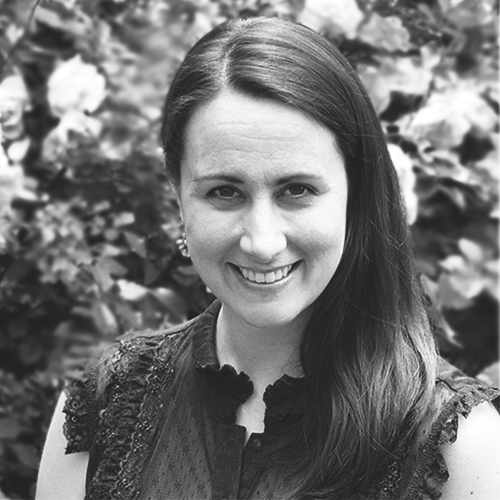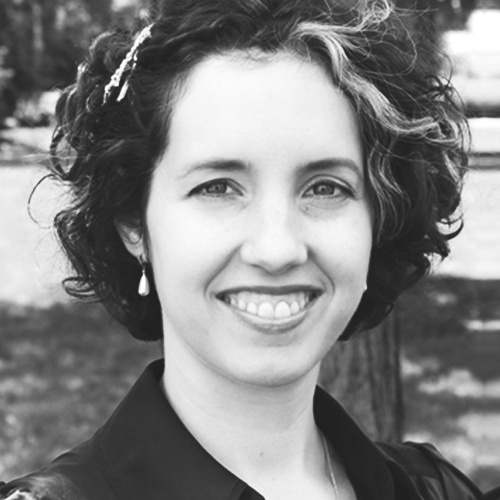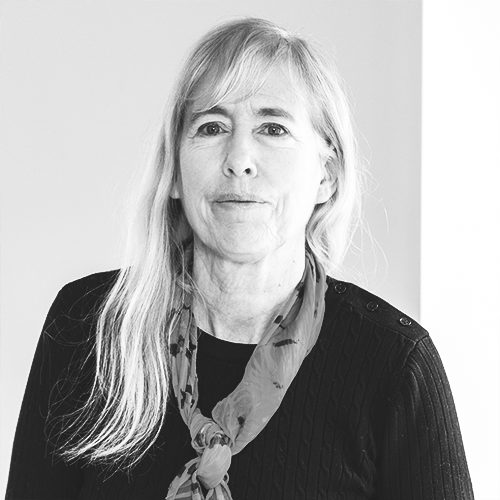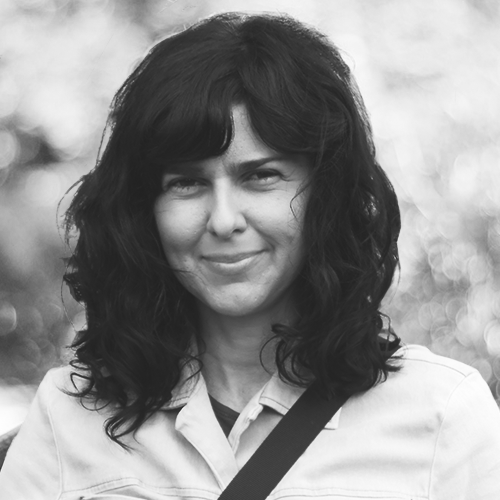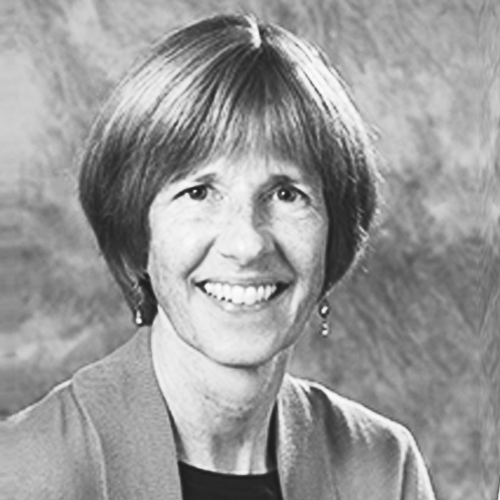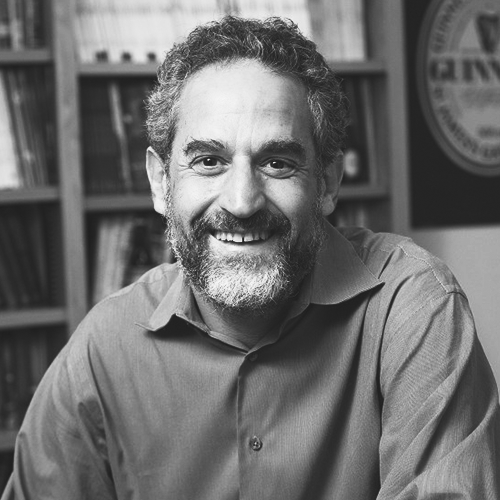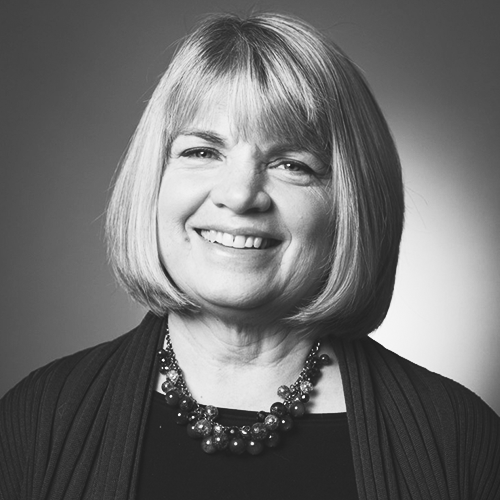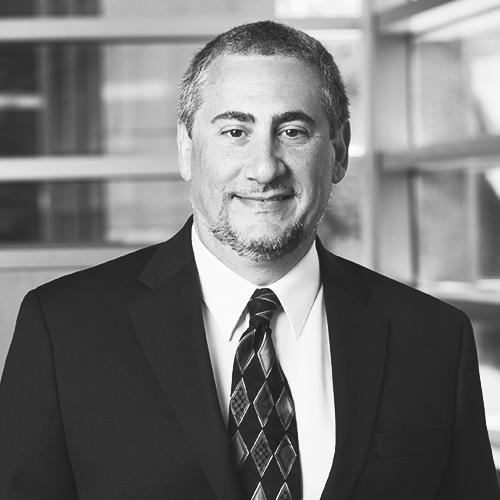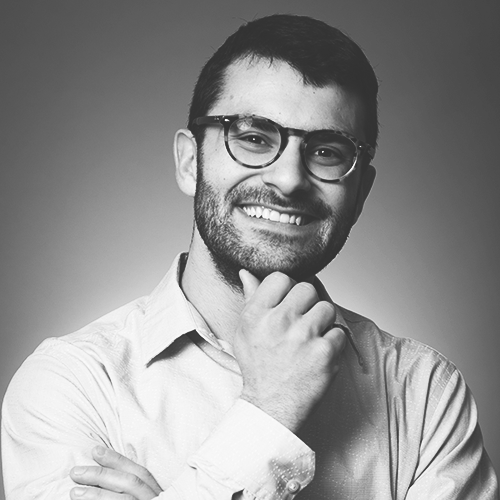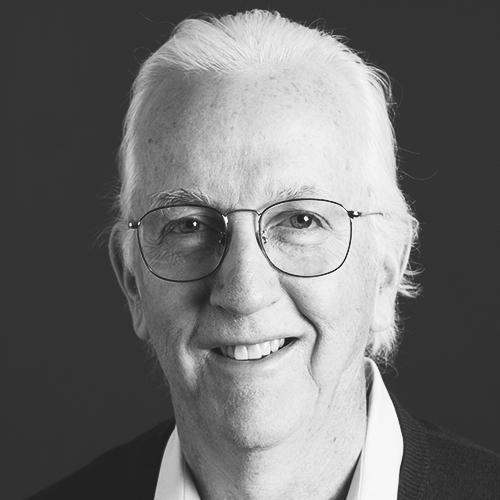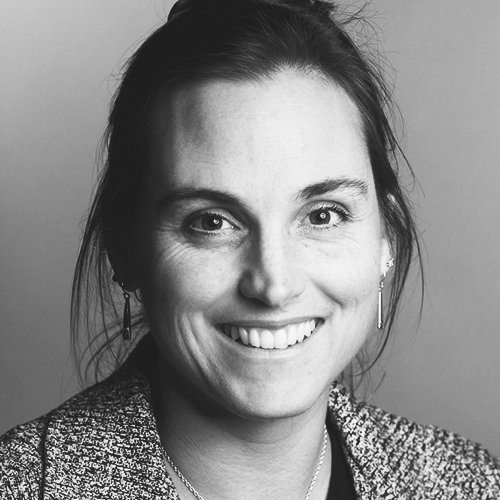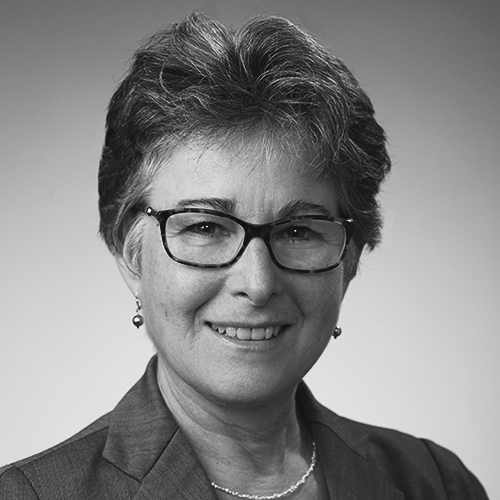Chris Anderson is a professor at the Cornell School of Hotel Administration. Prior to his appointment in 2006, he was on faculty at the Ivey School of Business in London, Ontario, Canada. His main research focus is on revenue management (RM) and service pricing. He actively works with industry, across numerous industry types, in the application and development of RM, having worked with a variety of hotels, airlines, rental car and tour companies, as well as numerous consumer packaged goods and financial services firms. Anderson’s research has been funded by numerous governmental agencies and industrial partners. He serves on the editorial board of the Journal of Revenue and Pricing Management and is the regional editor for the International Journal of Revenue Management. At the School of Hotel Administration, he teaches courses in revenue management and service operations management.
Meet the Faculty
Ariel Avgar is an Associate Professor at the ILR School at Cornell University and Associate Director for Research and Student Engagement with the Scheinman Institute on Conflict Resolution. His research focuses on two primary areas within employment relations. First, he explores the role that employment relations factors play in the healthcare industry. As such, he examines the effects of a variety of workplace innovations, including new technology, delivery of care models, and innovative work practices, on patients, frontline employees, and organizational performance. Second, he studies conflict and its management in organizations with a focus on the strategic choices made by firms. He seeks to better understand the consequences of conflict for employees and employers. In addition, his research investigates the adoption and implementation of organizational level conflict management practices and systems. His research has been published in a number of journals including: Industrial and Labor Relations Review, Industrial Relations, British Journal of Industrial Relations, Ohio State Journal on Dispute Resolution, International Journal of Conflict Management, International Journal of Human Resource Management, Negotiation and Conflict Management Review, Advances in Industrial and Labor Relations, Health Services Research and Medical Care. He received the 2008 Best Dissertation Award and the 2013 John T. Dunlop Scholar Award, both from the Labor and Employment Relations Association and serves as the Editor-in-Chief for the association. His paper (with Eric J. Neuman) titled “Blind spots and mirages: A dyadic approach to the study of team conflict” received the 2012 Best Paper: New Directions Award from the Academy of Management Conflict Management Division. He received a Ph.D. in Industrial Relations from the ILR School at Cornell University and a B.A. in Sociology and an LL.B in Law from Hebrew University. He served as Law Clerk for the President of the Israeli National Labor Court before being admitted into the Israeli Bar. Prior to joining ILR, he was an associate professor (2014-2016) and assistant professor (2008-2014) at the School of Labor and Employment Relations at the University of Illinois at Urbana-Champaign.
Samuel Bacharach is the McKelvey-Grant Professor of Labor Management and the Director of the Smithers Institute. He received his BS in economics from NYU. His MS and Ph.D. from the University of Wisconsin.
Upon joining the Cornell faculty in 1974, he spent most of his time working on negotiation and organizational politics, publishing numerous articles and two volumes (Power and Politics in Organizations and Bargaining: Power, Tactics, and Outcome, both with Edward J. Lawler). In the 1980s he continued working on negotiation, but shifted emphasis to the study of complex organizations, with the empirical referent being schools. Besides his academic articles, he published a number of books on school management and leadership, such as Tangled Hierarchies (with Joseph Shedd) and Education Reform: Making Sense of It All.
Linda Barrington is the Associate Dean for External Relations in the Cornell SC Johnson College of Business, as well as the executive director of Cornell’s Institute for Compensation Studies. Dr. Barrington’s published research addresses employee compensation, gender issues in the workplace, employees with disabilities, and workforce demographics.
Academic Expertise
My area of expertise is organizational ecology; that is, I study the way in which the planning, design, and management of complex facilities such as hospitals and large corporations and R&D units affect how individuals, teams, and organizations function.
Current Professional Activities
Professor Becker is a founding editor of the Journal of Corporate Real Estate and the Journal of Facilities Management, and is on the Advisory Board of the Health Environments Research and Design Journal and the California Healthcare Foundation. He is the Co-Chair of the Research Coaliton of the Center for Health Design, Professor Becker is a Fellow of the American Psychological Association, and a member of the International Facility Management Association.
Current Research Activities
Professor Becker’s research focuses on health and design. Specifically, he is involved with studies examining the influence of nursing unit design on communication and interaction patterns among multi-disciplinary clinical teams; and the effects of such communication on informal learning, job stress and quality of care.
Education
PhD 1972 – University of California, Davis
Social and Environmental Psychology
BA 1968 – University of California, Davis
Psychology
Bradford S. Bell is an Associate Professor of Human Resource Studies and Director of Human Capital Development and Executive Education in the School of Industrial and Labor Relations at Cornell University. He received his B.A. in Psychology from the University of Maryland at College Park and his M.A. and Ph.D. in Industrial and Organizational Psychology from Michigan State University. Dr. Bell teaches courses in Human Resource Management, Training and Development, and Work Groups and Teams to graduate and undergraduate students. Dr. Bell worked in the management and organization development department of First USA Bank/Banc One and has worked as an HR consultant for multiple private and public firms. Dr. Bell is a member of the Academy of Management, Society for Industrial and Organizational Psychology, and American Psychological Association.
Steve Bennoun is an Active Learning Lecturer in the Department of Mathematics. Dr. Bennoun completed his undergraduate degree at the École Polytechnique Fédérale de Lausanne in Switzerland and his PhD at the University of British Columbia in Canada. His research is focused on algebra and category theory and he has presented his work at several national and international conferences. Dr. Bennoun has also published articles in journals such as the Journal of Algebra. At Cornell, Dr. Bennoun’s research is focused on how to enhance student learning in mathematics courses by introducing active learning methods, a topic about which he is writing a book.
Nathalia Bernardo is an associate in the Real Estate practice of Paul Hastings in New York, where she counsels a wide variety of clients in commercial real estate transactions, including joint ventures, acquisitions and dispositions, development and management.
Ms. Bernardo received her B.B.A. from The George Washington University (summa cum laude) in 2001, and her J.D. from Boston College Law School (cum laude) in 2004.
She is admitted to the bar in New York and New Jersey.
Daniel Berry, Ph.D. is an Assistant Professor in the Division of Nutritional Sciences at Cornell University. He graduated from State University of New York at Cortland with a BS degree in Biology with a concentration in Environmental Science. He received a PhD degree in Molecular Nutrition from Case Western Reserve University and performed his postdoctoral studies in the Department of Developmental Biology and the Division of Endocrinology at the University of Texas Southwestern Medical Center.
The Berry research group is interested in studying adipose tissue biology and systemic metabolism and do so by examining adipose stem cells. Our group is especially interested in understanding how adipose stem cells communicate with their niche/microenviroment to generate adipocytes under specific nutrient stress and environmental conditions.
Elizabeth A. Bihn is a Senior Extension Associate in the Department of Food Science at Cornell University. She is currently the director of the Produce Safety Alliance and program coordinator for the National Good Agricultural Practices (GAPs) Program. The main focus of her work is to reduce microbial risks to fresh fruits and vegetables through research and extension programs developed for and in collaboration with growers, farm workers, produce industry personnel, students, teachers, and consumers. Betsy received her B.S. from Ohio State University in zoology, M.S. from the University of Florida in horticulture, and Ph.D. from Cornell University in food science.
Since coming to the Johnson Graduate School of Management in 1991, Prof. Robert Bloomfield has used laboratory experiments to study financial markets and investor behavior, and has also published in all major business disciplines, including finance, accounting, marketing, organization behavior, and operations research. Prof. Bloomfield served as director of the Financial Accounting Standards Research Initiative (FASRI), an activity of the Financial Accounting Standards Board, and is currently an editor of an a special issue of Journal of Accounting Research dedicated to Registered Reports of Empirical Research. Prof. Bloomfield has recently taken on editorship of Journal of Financial Reporting, which is pioneering an innovative editorial processes intended to broaden the range of research methods used in Accounting, improving the quality of research execution, and encouraging honest reporting of findings.
As the Johnson School’s Faculty Director of eLearning, Prof. Bloomfield oversees the development of online courses and helps faculty make best use of technology in traditional courses. He is the author of the award-winning eBook, What Counts and What Gets Counted, which can be downloaded for free online, and has used the book as the basis for online courses offered through eCornell, as well as award-winning teaching in Johnson’s Executive MBA programs.
Susan Brecher is the Director of HR Dispute Management and Resolution Certificate and Curriculum/Training Design at the Cornell ILR School’s Scheinmann Institute. She is an employment practices attorney and expert in training and curriculum design for both online and classroom-based workshops. She has served as Director of Statewide Management Programs and provided oversight of EEO, Labor Relations, Human Resources and Management Development programs. Ms Brecher has partnered with over 100 private, public and non-profit organizations to develop and present customized training programs. She has a law degree from Case Western Reserve University.
Judi Brownell is a professor at the School of Hotel Administration. She teaches courses in organizational behavior and management communication. Brownell has international teaching experience and her on-line eCornell executive courses are taken worldwide. Brownell’s research projects include studies on managerial listening behavior and the competencies required for global hospitality leaders. She has created tools to assess employee-organization fit and the communication of service values. Her current research focuses on listening as it relates to communicating and maintaining service quality standards in the international cruise industry. Brownell has authored several textbooks, published over 80 articles, and serves on several editorial boards. She is also past president of the International Listening Association and has received awards for her research in this field. Brownell has conducted training and consulting for a wide range of hospitality organizations. Among her projects, she has designed assessment centers for hospitality leadership development. A seasoned administrator, Brownell has served as the school’s associate dean for academic affairs, dean of students, and director for graduate studies. She has also been academic area director for both the organization behavior and management communication disciplines.
Working directly with IBECC director Dr. David Just, Adam Brumberg coordinates academic and industry research conducted by both IBECC and the Cornell University B.E.N. Center. Brumberg joined this team after a lengthy marketing and sales career in the wine industry, during which he worked with all links of the distribution chain, while also acting as a marketing and research consultant to a variety of industry and non-profit clients. Brumberg is an active cyclist and volunteer with the Southern Tier AIDS Program (STAP).
Susanne M. Bruyère, Ph.D., CRC, is currently Professor of Disability Studies and Director of the K. Lisa Yang and Hock E. Tan Institute on Employment and Disability, Cornell University ILR (Industrial and Labor Relations) School, Ithaca, N.Y.
The Yang-Tan Institute is a research, training, and technical assistance center focusing on disability inclusion in employment, education, and community. Dr. Bruyère serves as Institute administrative and strategic lead, and also as the PI/Co-PI of numerous research, dissemination, and technical assistance efforts focused on employment and disability policy and effective workplace practices for people with disabilities.
She is the author/co-author of three books and over 120 peer-reviewed articles and book chapters on workplace disability inclusion and related topics. Susanne holds a doctoral degree in Rehabilitation Counseling Psychology from the University of Wisconsin-Madison and is a Fellow in the American Psychological Association. Dr. Bruyère is a past president of the Division of Rehabilitation Psychology (22) of the American Psychological Association, the American Rehabilitation Counseling Association (ARCA), the National Council on Rehabilitation Education (NCRE), and past Board Chair of the Executive Board of the Global Applied Disability Research and Information Network on Employment and Training (GLADNET), and the Commission on Accreditation of Rehabilitation Facilities (CARF).
I am a faculty member in the ILR School at Cornell University. My primary appointment is in human resource studies with courtesy appointments in organizational behavior and sociology. Prior to joining the Cornell faculty in 2009, I was a faculty member at the MIT Sloan School of Management. I started my academic career at the Harvard Business School teaching leadership and organizational behavior. I earned my Ph.D. in sociology at Stanford University and served as a lecturer and researcher in organizational behavior and human resources management at the Stanford Graduate School of Business.
Derek Cabrera (PhD, Cornell) is a systems scientist, Professor, and social entrepreneur and is internationally known for his work in systems thinking, systems leadership, and systems modeling. He is currently visiting faculty at Cornell University where he teaches systems thinking and organizational leadership and design. He is senior scientist at Cabrera Research Lab, and Co-Founder and Chief Science Officer of Plectica. He has given two TED Talks, written and produced a rap song, a children’s book on cognition, and authored numerous book chapters and peer-reviewed journal articles. His research has been profiled in peer-reviewed journals, trade magazines, and popular publications, and he is author of eight books including, Systems Thinking Made Simple: New Hope for Solving Wicked Problems (winner of the 2017 AECT outstanding book award), Thinking at Every Desk: Four Simple Skills to Transform Your Classroom, and Flock Not Clock: Align People, Processes, and Systems to Achieve your Vision. Credited with discovering the underlying rules of systems thinking, Cabrera is co-editor of the Routledge Handbook of Systems Thinking. His work in public schools was documented in the full-length documentary film, RE:Thinking. He was Research Fellow at the Santa Fe Institute (SFI) for the Study of Complex Systems and National Science Foundation IGERT Fellow in Nonlinear Systems in the Department of Theoretical and Applied Mechanics at Cornell University. As a National Science Foundation postdoctoral fellow, he developed new techniques to model systems approaches in the evaluation of Science, Technology, Engineering, and Mathematics (STEM). Cabrera was awarded the Association of American Colleges and Universities’ K. Patricia Cross Future Educational Leaders Award. He serves on the United States Military Academy at West Point’s Systems Engineering Advisory Board. His contributions to the field of systems thinking have been integrated into NSF, NIH, and USDA-NIFA programs, K-12, higher education, NGOs, federal agencies, corporations, and business schools. His systems models are used by many of Silicon Valley’s most innovative companies. Systems Thinking Made Simple is used as an introductory text for undergraduate and graduate students in numerous colleges and universities including Cornell University and West Point Military Academy. Cabrera has developed and patented a suite of systems thinking tools for use in academia, business, and beyond. Prior to becoming a scientist, Cabrera worked for fifteen years around the world as a mountain guide and experiential educator for Outward Bound and other organizations and has climbed many of the world’s highest mountains. He holds a PhD from Cornell University and lives in Ithaca, NY, with his wife, Laura Cabrera, three children, and four dogs.
Laura is Plectica’s Chief Research Officer.
For over 15 years, Laura has conducted translational research to increase public understanding, application, and dissemination of systems science, including for USDA, the National Academy of Sciences Institute of Medicine, HHS, and the Dept. of Justice.
She is also a senior researcher at Cabrera Research Lab, has authored five books on systems thinking and its applications, and is a member of the United States Military Academy at West Point’s Systems Engineering Advisory Board.
Laura holds a PhD in Policy Analysis and Management, a Master’s in Public Administration, and a B.A., all from Cornell.
Her family is her favorite system…
Dr. Carroll is a Clinical Professor (ret.) at the School of Hotel Administration. For more than twelve years he has taught economics, pricing and marketing distribution courses at the undergraduate, graduate and executive education level. He holds a B.A. degree in economics from Rutgers, an M.S. in labor studies from the University of Massachusetts, and a Ph.D. in economics from Penn State.
As CEO of Marketing Economics, a consulting firm specializing in travel industry pricing, distribution, yield management and strategic planning, Dr. Carroll works with a variety of clients including global distribution systems, hotel service companies and travel intermediaries. He also works closely with PhoCusWright, Inc., a travel industry research, consulting and publishing company, and has written a number of reports and articles, including a report covering the evolution of hotel distribution and its impact on major chains and intermediaries.
For over 25 years Dr. Carroll held a variety of senior positions in the travel industry. He was the Division Vice President for Global Marketing Planning at Hertz where he was responsible for global pricing, yield management, marketing information systems, and counter sales. He implemented the first decentralized yield management system in the car rental industry and a comprehensive Executive Information System (EIS) that gained national recognition. Following Hertz, Dr. Carroll served as the Global Vice President for Reed Elsevier’s Travel Group which included responsibility for Travel Weekly, the Hotel and Travel Index, the Official Hotel Guide, and the Official Meetings and Facilities Guide. He was also responsible for production and data base systems and the migration of information products to electronic distribution.
Prior to his work in the travel industry, Dr. Carroll was an assistant professor of economics at Drew University where he taught courses in econometrics, public finance, labor and environmental economics. He also served as a member of the economics staff at AT&T where he was an expert witness before state regulatory bodies and prepared filings on pricing and forecasting with the Federal Communications Commission.
Dr. Carroll has written numerous academic and popular-press articles on economics and travel industry topics.
In addition to his business and academic career, he is a retired U.S. Army Lieutenant Colonel and was a university lacrosse coach for over 10 years.
Dr. Carvell joined the Cornell University School of Hotel Administration’s finance faculty in 1986. He is currently a Professor of Finance in the SC Johnson College of Business. Over the past 33 years he has taught undergraduate and graduate courses such as Advanced Corporate Finance, Capital Budgeting, Financial Strategy, and Investments. Dr, Carvell has also been an active teacher in executive education since 1990, working with almost every major domestic and international hotel company to create custom courses for hotel executives. These companies include Hilton, Marriott, InterContinental Hotel Group, Taj Hotels, Jumeirah, Accor, Sol Melia, Le Meridien, Shangri La, and Peninsula. Dr. Carvell has also authored eight distance learning courses through eCornell that are among the most widely demanded courses offered. He has held academic leadership positions at the School of Hotel Administration since 1999, serving as the Associate Dean for Academic Affairs from 2007-2016 and the Academic Director of the Pillsbury Institute for Entrepreneurship from 2013-2016
Dr. Carvell has published numerous articles in academic and professional journals including the Financial Analysts Journal, Journal of Portfolio Management, the Harvard Business Review, and the Cornell Quarterly, and is the co-author of In the Shadows of Wall Street. His work has been featured in the Wall Street Journal, The New York Times, Forbes, Fortune, Institutional Investor, Financial World, and Leaders. He has recently finished a major project designed to identify the determinants of hotel demand for U.S. hotels and another on economic and capital market antecedents of venture capital commitments. He is currently working on a project to disaggregate hotel room rates within urban markets and another to determine the risk-return characteristics of hotel room rates in major U.S. markets. Dr. Carvell is also involved with evaluating the effectiveness of hotel company business strategies using strategic benchmarking and Economic Value Added analysis.
Dr. Carvell has worked for professional money managers in the area of applied strategy in the equity market and served as a consultant to the Presidential Commission on the 1987 stock market crash. His consulting interests include valuation and risk analysis in feasibility studies, hotel debt capacity, strategic benchmarking, and corporate and financial strategy.
Michele Lefebvre holds a Bachelor’s degree in Dietetics from SUNY College at Oneonta and is graduating with her Masters of Management in Hospitality from The Hotel School at the Cornell SC Johnson College of Business in May 2019. Michele’s previous experience as the owner and proprietor of a personal chef and nutrition counseling company gave her expertise in food allergies and ingredient substitutions. She brought this knowledge into campus dining, where she has worked for the last ten years. During her tenure, she has successfully helped to execute nutrition labeling, food allergy training and protocols, and helped to conceive of the only gluten free, peanut and tree nut free certified dining hall in the country. Michele is looked upon as a leader in this industry and often consults with manufacturing and distribution companies to help them establish standards in ingredients, allergens, and best practices. In 2018, Michele was awarded Best Overall Food Allergy Program Manager for Universities by AllerTrain.
Robert B. Gravani is Professor Emeritus of Food Science at Cornell University where he has been actively engaged in Extension/Outreach, Teaching and Research activities. Bob has worked with all sectors of the food system and developed innovative programs for constituents in production agriculture, food processing, food retailing, and food service, as well as for regulatory agencies and consumers. He is Past President, Past Treasurer and Fellow of the Institute of Food Technologists (IFT) and was the 2014 recipient of IFT’s Calvert Willey Distinguished Service Award. Bob is also a Past President of the International Association for Food Protection (IAFP) and a Fellow of the association. Through his 40-year academic career, he has educated generations of food scientists at the university and reached thousands of food industry professionals through distance education courses, workshops and symposia that he has organized and conducted. Bob has been recognized for his accomplishments by receiving several Cornell teaching and Extension/Outreach awards.
Lecturer for the College of Human Ecology
Faculty Fellow, Cornell Institute for Healthy Futures
Director of the Cornell University Wellness Program, 2000-2018
Beth McKinney is a Lecturer in the College of Human Ecology and former Director of the Cornell University Wellness Program. She received her bachelor’s degree in nutritional sciences and her master’s degree in health education. Beth’s expertise in coaching and counseling spans over 20 years and includes life coaching, nutrition counseling, wellness counseling, and behavior change. Beth also teaches counseling skills and behavior change techniques to Cornell undergraduates. Beth is a Certified Health Education Specialist (CHES) and Certified Intrinsic Coach®. With previous experience in both clinical and community nutrition, Beth specializes in both nutrition education and behavior change.
Christopher J. Collins is an Associate Professor of Human Resource Management and Director of CAHRS in the ILR School at Cornell University. He earned his Ph.D. in Organizational Behavior and Human Resources from the Robert H. Smith School of Business at the University of Maryland.
Dr. Collins’ teaches, conducts research, and does consulting in the areas of strategic human resource management, the role of HR practices and leadership in driving employee engagement, and the role of HR in driving firm innovation and knowledge creation. His research has been accepted for publication in the Academy of Management Journal, Journal of Applied Psychology, Personnel Psychology, Human Resource Management Review, and Human Performance. In addition, Dr. Collins serves on the editorial boards of the Academy of Management Journal, Journal of Applied Psychology, the Journal of Management, and Personnel Psychology.
He currently teaches courses in Human Resource Management, Organizational Consulting, and Business Strategy to masters and undergraduate students in the ILR School at Cornell University. Dr. Collins has taught executive development programs at Cornell University and the Society of Human Resource Management. He has also worked as a private HR consultant or conducted executive development programs to multiple Fortune 500 organizations and several startup organizations. His consulting work has primarily focused on talent management, employee engagement, and strategic HR planning.
Dr. Collins is a member of the Academy of Management, Strategic Management Society, and Society for Human Resource Management.
Alexander Colvin is Associate Dean for Academic Affairs, Diversity, and Faculty Development and the Martin F. Scheinman Professor of Conflict Resolution at the ILR School, Cornell University. He is an associate member of the Cornell Law Faculty. His research and teaching focuses on employment dispute resolution, with a particular emphasis on procedures in nonunion workplaces and the impact of the legal environment on organizations. His current research projects include empirical investigations of employment arbitration and a cross-national study of labor and employment law change in the Anglo-American countries. He has published articles in journals such as Industrial & Labor Relations Review, Industrial Relations, British Journal of Industrial Relations, Personnel Psychology, Relations Industrielles, the Ohio State Journal on Dispute Resolution, and the Cornell Journal of Law & Public Policy. He is also co-author (with Harry C. Katz and Thomas A. Kochan) of the textbook An Introduction to Collective Bargaining and Industrial Relations, 4th edition (Irwin-McGraw-Hill).
Prof. Colvin received his J.D. in 1992 from the University of Toronto and his Ph.D. in 1999 from Cornell University. He received the 2003 Outstanding Young Scholar Award from the Industrial Relations Research Association (IRRA) and the 2000 Best Dissertation Award from the IRRA for his dissertation entitled “Citizens and Citadels: Dispute Resolution and the Governance of Employment Relations”. Before joining the faculty of the ILR School in 2008, he taught at Penn State University from 1999-2008.
Keith Cowing is a Visiting Lecturer at Cornell Tech and vice president of product management at Flatiron Health, a technology company focused on accelerating cancer research. He has spent 15 years building products, teams, and companies, and now teaches about careers and product management. Keith publishes a blog at KeithonCareers.com.
Prior to joining Flatiron, Keith was a product manager at Twitter, LinkedIn, and Goldman Sachs. He was also the founder and CEO of Seamless Receipts. Keith led the team, raised venture capital, managed the development and launch of new products, and secured business from global brands such as Oakley, Tumi, Burton, and Lenox.
Keith received an MBA with distinction in entrepreneurship and a Bachelor of Science cum laude in electrical and computer engineering from Cornell University.
Erica is a Cornellian (’03 PhD, Social Psychology). She was Assistant Professor of Management and Organizations at Yale University before returning to Ithaca to create and direct the Engineering Leadership Program in 2012. Erica teaches and consults worldwide on judgment and decision-making, negotiation, leadership, and coaching.
She has worked with groups as diverse as German engineers, Tibetan monks, female pharmaceutical scientists, and American sixth-graders. Her current research interests focus on individual psychological phenomena and leadership dynamics in high-risk occupations and sports.
Jan A. deRoos is the HVS Professor of Hotel Finance and Real Estate at the Cornell SC Johnson College of Business. He has devoted his career to teaching and research related to hospitality real estate, with a focus on the valuation, financing, development, and control of lodging, timeshare, and restaurant assets.
DeRoos has developed two online executive education programs for real estate professionals; one with a broad real estate industry perspective and a second that focuses on lodging. He co-developed a free web-based tool, the Hotel Valuation Software, with Stephen Rushmore of HVS International. His book on hotel management agreements, co-authored with the late James Eyster, is the seminal academic publication on the topic.
Prior to joining Cornell, deRoos worked extensively in the hotel industry as a construction and engineering manager.
Chekitan S. Dev is professor of marketing at Cornell University’s School of Hotel Administration in the SC Johnson College of Business. Since 1986, Professor Dev has taught over 15,000 students and executives both on campus and throughout the world. He is internationally recognized for his teaching and course development and has received multiple awards for teaching excellence from undergraduate students, graduate students, and Ernst & Young.
A globally renowned thought leader with over 125 publications to his credit, Professor Dev is recognized as a leading expert on service branding. He has published his work in some of the highest quality refereed journals, including the Journal of Marketing, Journal of Marketing Research, Harvard Business Review and MIT Sloan Management Review. His work has been presented at the world’s best business schools including Harvard, Wharton, Chicago, Oxford, ESSEC, Indian Business School and National University of Singapore. Recent research awards he has won include a 2017 Best Service Paper Award (finalist), a 2016 Cornell Hotel School Dean’s Academic Excellence Award, a 2016 Industry Relevance Award, and a 2014 Best Paper (runner-up) Award from INFORMS.
My expertise is in the area of nutrition education for limited-resource audiences that is designed to prevent obesity and chronic disease. I lead the Expanded Food and Nutrition Education Program for New York State and provide program leadership in collaboration with the NYS Office of Temporary and Disability Assistance for the Supplemental Nutrition Assistance Program–Education. I have been active in national leadership for both programs. My research is closely integrated with the outreach provided by these programs. I direct the Northeast Regional Nutrition Education and Obesity Prevention Center of Excellence, funded by USDA National Institute for Food and Agriculture and the Food and Nutrition Servies. The signature research program for this center is to investigate the additive effect of skill-based nutrition education in combination with changes in policy, systems, and environmental changes, designed to make healthy choices easier, on nutrition and physical activity behaviors in low-income populations.
In addition, we have developed an innovative staff training model and I have conducted research regarding program management that supports staff effectiveness. Several projects have been guided by the socio-ecological model in bringing about changes at various levels of the environment that are conducive to healthy food and activity choices. We developed and tested a curriculum that targets low-income parents of 3-11 year olds, integrating parenting practices with skills to promote healthy food choice and active play both at home and where children live, learn and play. We currently have a randomized control trial of this program underway. A second, related project aimed to build the capacity of local Cooperative Extension staff to collaborate with agency partners to make community-level environmental changes.
Professor Glen Dowell is an associate professor of management and organizations at the Johnson Graduate School of Management. He researches in the area of corporate sustainability, with a focus on firm environmental performance. Recent projects have investigated the effect of local demographic factors on changes in pollution levels, the role of corporate merger and acquisition in facilitating changes in facility environmental performance, and the relative influence of financial return and disruption on commercial adoption of energy savings initiatives.
Professor Dowell’s research has been published in Management Science, Organization Studies, Advances in Strategic Management, Strategic Management Journal, Organization Science, Journal of Management, Industrial and Corporate Change, Journal of Business Ethics, and Administrative Science Quarterly. He is Senior Editor at Organization Science, Co-editor of Strategic Organization, is on the editorial boards of Strategic Management Journal, and Administrative Science Quarterly, and represents Cornell on the board of the Alliance for Research in Corporate Sustainability (ARCS). He is also the Division Chair for the Organizations and Natural Environment Division of the Academy of Management.
Professor Dowell teaches Sustainable Global Enterprise and Critical and Strategic Thinking. He is a faculty affiliate for the Center for Sustainable Global Enterprise and is a faculty fellow at the Atkinson Center for a Sustainable Future.
Danielle Eiseman is a lecturer in the Department of Communication within the College of Agriculture and Life Sciences at Cornell University. Professor Eiseman has five years’ experience working in media, advertising, and public engagement, with a focus on messaging on sustainable and pro-environmental behaviors. She has developed coordinated messaging campaigns in Scotland, developed educational and promotional materials for the Scottish Government Climate Change Behavioral Research Group, and organized community debates on climate-related issues such as reducing city speed limits to reduce carbon emissions.
Her Ph.D. is in Marketing from Heriot-Watt University in Edinburgh, Scotland. Professor Eiseman also holds a Master’s in Carbon Management from the University of Edinburgh, a Master’s in Marketing and Economics from DePaul University, and a Bachelor’s in Chemistry from Miami University. Professor Eiseman’s current research is focused on engaging the public on climate change through food as well as youth education on climate change.
Allison Elias is a Senior Fellow and Lecturer in Management at the Wharton School of the University of Pennsylvania. She is also a Visiting Assistant Professor at the Cornell School of Hotel Administration for the 2019-2020 academic year.
Her research investigates historical and contemporary issues of gender and diversity in organizations, with a particular focus on the ways that social movements become translated into corporate policies and practices. Her forthcoming book (Columbia University Press), at the intersection of history, gender, and management studies, charts the trajectory of modern feminism at work by tracing the changing nature of secretarial work from the 1960s to the present.
Before coming to Wharton, Dr. Elias taught at the Owen Graduate School of Management, Vanderbilt University, where she was also appointed a Fellow in the Provost’s Office for Inclusive Excellence. Previously, she was on faculty at Cornell University in the ILR School and the SC Johnson College of Business. Dr. Elias received her doctorate in History from the University of Virginia, where she worked during graduate school as a research associate at the Darden School of Business.
Cathy A. Enz is the Lewis G. Schaeneman Jr. Professor of Innovation and Dynamic Management and a professor in strategy. She currently serves as the associate dean for academic affairs in the School of Hotel Administration. Her prior administrative roles included serving as associate dean for industry research and affairs, executive director of the Center For Hospitality Research, and school management area coordinator. Cathy has published over one hundred journal articles and book chapters, as well as five books in the area of strategic management and innovation. Her research has been published in a wide variety of prestigious academic and hospitality journals, such as Administrative Science Quarterly, The Academy of Management Journal, and The Cornell Hospitality Quarterly.
Enz teaches courses in innovation and strategic management and is the recipient of both outstanding teaching and research awards. She developed the Hospitality Change Simulation, a learning tool for the introduction of effective change which is available as an online education program of eCornell. Three strategic management courses are also available through eCornell. Enz also presents numerous executive programs around the world, consults extensively in North America, and serves on the Board of Directors of two privately owned hotel companies.
Prior to her academic activities, Enz held several industry positions, including strategy development analyst in the office of corporate research for a large financial services organization and operations manager responsible for Midwestern United States customer service and logistics in the dietary food service division of a large U.S. health care corporation. Enz received her PhD from the Fisher College of Business at Ohio State University and taught on the faculty of the Kelley School of Business at Indiana University prior to arriving at Cornell in 1990.
Cindy van Es is professor of practice in the Dyson School of Applied Economics and Management. She has a PhD in statistics from Iowa State University, and joined Cornell in 1988. She teaches three courses in the undergraduate business program: Introductory Statistics, Business Statistics, and Impact Learning: South Africa. Her general area of interest is statistical education, with a focus on business applications and teaching through social justice examples.
She currently serves as director of Dyson’s Undergraduate Business Program. In this position, she provides strategic leadership and supervision on activities within the undergraduate program at the school, focusing specifically on implementation of the undergraduate curriculum and review of academic policies
A graduate of the Cornell University School of Industrial and Labor Relations and the University of Connecticut School of Law, Ms. Espinosa is an arbitrator, mediator, and certified organizational ombudsman practitioner, specializing in the resolution of workplace disputes. She is a member of a number of labor arbitration rosters and panels and also serves as a hearing officer for the City of New York Department of Education. She also serves as a mediator on the Nuclear Regulatory Commission panel, assisting in the resolution of disputes involving regulatory matters as well as whistleblower complaints. Ms. Espinosa serves as a part-time faculty member at the University of Maryland Baltimore County and Montgomery College.
Tom is currently a Senior Lecturer in the department of Policy Analysis and Management. Prior to Cornell, Tom worked as a Lecturer in the department of economics at the University of Chicago, and held various manufacturing positions in Canada, New York, and South Carolina.
Nick Fabrizio PhD, FACMPE, FACHE, is a principal consultant with the MGMA Health Care Consulting Group and serves on the faculty at Cornell University’s Sloan Program in Health Administration, where he has also served as the executive in residence. His primary expertise is in physician practice management and managing complex physician-hospital relationships.
David Feldshuh has served as a Professor of Theatre at Cornell University for more than 30 years. His course, Leadership Presence: Acting in Public, leverages theater techniques to train scientists, leaders in education and business, and anyone else wanting to enjoy more effective communication of their ideas and passions. Feldshuh has been recognized as a Stephen H. Weiss Presidential Fellow, Cornell’s highest teaching award.
Feldshuh began his professional career as an actor and director at the Guthrie Theater in Minneapolis. He then earned a PhD in theater (focusing on creativity and actor training) and then an MD degree, specializing in Emergency Medicine. He is a Diplomate of the American Board of Emergency Medicine and spends part of each week as a practicing physician.
Feldshuh is the author of three widely produced plays, most notably Miss Evers’ Boys, a finalist for the Pulitzer Prize in Drama. As an HBO movie, Miss Evers’ Boys received 12 Emmy nominations winning five, including Best Picture.
My education and professional training has focused on the use of natural, statistical, and social sciences to investigate and address problems of public health. This training includes a Ph.D. in Nutritional Sciences from Cornell University as well as postdoctoral training in both research and curriculum development in Cornell’s Dyson School of Applied Economics and Management and Cornell’s Division of Nutritional Sciences, respectively. My expertise and personal interests relate to maternal and child health and to promoting justice and equity in public access to health, well-being, and opportunity.
As Associate Director of Undergraduate Studies in the Division of Nutritional Sciences, my activities primarily relate to coordinating the undergraduate advising program, directing the Division’s research-based Undergraduate Honors Program, and teaching.
I am an Assistant Professor in the Division of Nutritional Sciences at Cornell University. I received a B.S. in chemistry from Butler University in 2000 and a Ph.D. in Biochemistry, Molecular and Cell Biology from Cornell University in 2007. My research area of interest is folate-dependent one-carbon metabolism, which is required for synthesis of DNA precursors and methionine. Perturbations in this network may result from folate deficiency, polymorphisms in genes that encode folate-dependent enzymes, and/or other B-vitamin deficiencies. These perturbations are associated with adverse physiological outcomes that include certain cancers, cardiovascular disease, neurological impairments, and birth defects. While fortification of the food supply with folic acid has decreased birth defect rates both in the U.S. and throughout the world, the mechanisms that underlie this response and possible interactions with other clinical outcomes are not completely understood.
My research uses several in vitro and in vivo model systems to study the mechanisms that underlie physiological outcomes associated with perturbed one-carbon metabolism. More specifically, inadequate thymidylate (dTMP, or the “T” base in DNA) can result in misincorporation of uracil into DNA, which then leads to DNA damage and genome instability in both nuclear and mitochondrial DNA. Recent studies using isotope tracer methodologies have elucidated mechanisms whereby mammalian cells respond to folate deficiency to spare nuclear dTMP synthesis at the expense of methionine synthesis. We have also shown that nucleotide precursors of thymidylate, namely uridine and deoxyuridine, have distinct fates in DNA, and dietary intake of each of these nucleosides uniquely modifies folate-responsive birth defects and colon tumor formation in mice. Current and future research will extend these studies to understand the mechanisms by which perturbed one-carbon metabolism and genome instability affect pathologies including peripheral neuropathy, neurological disorders, and lung cancer.
Mitochondrial de novo dTMP biosynthesis is considerably more sensitive to folate depletion than nuclear de novo dTMP synthesis, as measured by misincorporation of uracil into mitochondrial. Elucidating the molecular mechanisms linking folate nutrition and enzyme expression/localization in supporting mitochondrial de novo dTMP synthesis is also a focus of my current research–especially as related to mitochondrial DNA integrity and pathogenesis of metabolic diseases such as mitochondrial DNA depletion syndromes, chronic disease, and age-related decline in mitochondrial function.
This project is addressing the metabolic pathways underlying the association between erythritol exposure, endogenous erythritol synthesis, central metabolism, and weight/central adiposity gain.
Allan Filipowicz is clinical professor of management and organizations at the Samuel Curtis Johnson Graduate School of Management at Cornell University. Professor Filipowicz’s research focuses on how emotions drive or impede leadership effectiveness, at both the intrapersonal and interpersonal levels. Within this domain, he studies the relationship between emotions and risky decision making; the influence of humor on both leadership and negotiation effectiveness; the impact of emotional transitions in negotiations; and the relationship between genes, chronotype (morningness–eveningness) and performance. His work has been published in the Journal of Personality and Social Psychology, Journal of Behavioral Decision Making, Journal of Operations Management, International Journal of Forecasting, Creativity Research Journal, Journal of Circadian Rhythms, and Scientific Reports.
Professor Filipowicz teaches Managing and Leading Organizations (recently winning a Best Core Faculty Award), Negotiations, Executive Leadership and Development, Leading Teams, and Critical and Strategic Thinking. He has taught executives across the globe, from Singapore to Europe to the US, with recent clients including Medtronic, Bayer, Google, Pernod Ricard, and Harley-Davidson. Professor Filipowicz received his PhD from Harvard University. He holds an MBA from The Wharton School, an MA in International Affairs from the University of Pennsylvania, and degrees in electrical engineering (MEng, BS) and economics (BA) from Cornell University. His professional experience includes banking (Bankers Trust, New York) and consulting, including running his own boutique consulting firm and four years with The Boston Consulting Group in Paris.
After graduating from Cornell’s School of Industrial and Labor Relations, Dick began his career in human resources before moving into dispute resolution with the American Arbitration Association in Washington, D.C. He later became a labor and employment lawyer in Chicago. Today, Fincher manages a dispute resolution company. He is hired by law, union and management firms as a mediator and arbitrator to settle labor and employment disputes. He has also co-authored the text “Emerging Systems for Managing Workplace Conflict” with former ILR Dean David Lipsky and retired Professor Ron Seeber.
Dr. Julia Finkelstein is the Follett Sesquicentennial Faculty Fellow and Assistant Professor of Epidemiology and Nutrition in the Division of Nutritional Sciences, Cornell University. She is also an adjunct Associate Professor at St. John’s Research Institute in Bangalore, India. She received her Bachelor of Science degree from McGill University, Master of Public Health degree from Brown University, and Master of Science and Doctor of Science degrees in Epidemiology and Nutrition from Harvard University.
Dr. Finkelstein is an epidemiologist with expertise in the design and conduct of randomized clinical trials, cohort studies, and surveillance programs in resource-limited settings. The goal of the Finkelstein Laboratory is to elucidate the role of iron, vitamin B12, and folate in the etiology of anemia and adverse pregnancy outcomes, and inform the development of interventions to improve the health of mothers and young children.
Dr. Finkelstein was awarded the ILSI North America Future Leader Award in 2017. She served as an expert consultant for the World Health Organization on topics including the WHO Vitamin and Mineral Information System, Chair of the B-vitamins and One-Carbon Metabolism symposium at the Experimental Biology conference, external expert with the World Health Organization Nutrition Guidelines Group, and NIH reviewer for the National Institute of Diabetes and Digestive and Kidney Diseases.
Connie joined the Produce Safety Alliance as the Northwest Regional Extension Associate in August 2017 with over eight years of extension experience in Nebraska and North Carolina and over three years of experience teaching college-level horticulture, microbiology, food science, agroecology, and family and consumer science courses, both on campus and online. Her education and work experience include production, harvest, postharvest handling, processing, and evaluation (quality, safety, sensory) of a variety of agricultural products. She is passionate about teaching the information and skills growers need to produce safe, high quality crops for fresh and processing markets and comply with buyer requirements and government regulations. Connie received her B.S. in Nutrition and Food Management and her M.S. in both Food Science & Technology and Horticulture from Oregon State University and her Ph.D. in Horticultural Science from NC State University. Follow her on Twitter @connie_fisk.
From 2010 to 2018, Dr. Susan S. Fleming was a Senior Lecturer at the Cornell School of Hotel Administration. Currently, she is an executive educator and frequent speaker on women in leadership and entrepreneurship, a corporate director, an active angel investor and a mom. Fleming began her career on Wall Street, where over a period of twelve years she held various positions in the investment community, including that of analyst at Morgan Stanley & Co.; vice president of Insurance Partners, L.P., a $540 million private equity fund; and partner at Capital Z Financial Services Partners, a $1.85B private equity fund.
After retiring from Wall Street in 2003, Fleming began work as an educator, teaching executives, investment professionals, MBAs, and undergraduates in the areas of corporate finance, insurance, valuation, and gender bias. She also enrolled at Cornell University’s Johnson Graduate School of Management to pursue a PhD in management, where her research focused on better understanding the factors contributing to a dearth of women in leadership positions in U.S. society.
In addition to her work as an educator, researcher, and business consultant, Fleming helped to found a startup company in Ithaca, NY; has served on the board of directors of five publicly traded insurance and reinsurance companies, two private companies, and three non-profit organizations; and currently serves on the board of RLI Corp., a publicly traded specialty insurer serving diverse, niche property, casualty and surety markets, and Virtus Investment Partners, Inc., a publicly traded asset management firm. Fleming has been published in the Cornell Hospitality Quarterly, Psychology of Women Quarterly, the Journal of Higher Education, and Cornell Hospitality Reports and holds a BA from the University of Virginia, and an MS and PhD in management from Cornell University.
Dr. Fletcher is co-chair of the RECOVER Initiative, which published the first evidence-based veterinary CPR guidelines in 2012, and has taught CPR courses all over the world. His research interests include high fidelity medical simulation for veterinary training; novel diagnostic markers and therapeutic targets for patients in shock; non-invasive measures of cardiac output and oxygen delivery; diagnosis and treatment of disordered fibrinolysis; biochemical prognostic and diagnostic indicators and cardiopulmonary resuscitation.
Jim Fulton is a partner in the Emerging Companies practice group. He joined the Firm in 1995 and is resident in the New York office. Prior to his tenure in New York, Mr. Fulton spent 17 years practicing in Cooley’s Palo Alto office where he was firm-wide Chair of the Emerging Companies practice group and chair of the Clean Energy and Technologies group.
Mr. Fulton focuses on representing both emerging and established technology, healthcare and biotechnology companies and the venture capital firms that invest in those companies. Concentrating in corporate and securities law, he counsels companies throughout their lifecycle on matters ranging from company formations, private financings, employee equity incentives and executive hiring, to complex spinouts, mergers and acquisitions, IPOs and SEC reporting and compliance. In the last 10 years alone, Mr. Fulton has worked on more than 350 venture capital transactions, raising more than $4 billion dollars. In addition, he has closed venture capital funds raising in excess of $5 billion, public offerings of nearly $1 billion in equity and M&A transactions valued at more than $3 billion.
His clients represent a wide range of industries including internet, digital and social media, mobile, software, retail, healthcare IT, medical device, telecommunications, semiconductor, clean technologies, and life sciences. Representative clients include Web.com, AAA, Blurb.com, Cloud Physics, Dialogic, Inc., eASIC Corporation, Modern Meadow and Segetis. Mr. Fulton also represents many leading venture capital firms in their financings, including InterWest Partners, Mayfield Fund, NEA, Norwest Venture Partners, Panorama Capital, Scale Venture Partners, and Versant Venture Capital.
Mr. Fulton was named on the 2012 AlwaysOn Power Players in Greentech list and one of the Top 25 Clean Tech Lawyers in California by The Daily Journal in 2011. He was also recognized in The Best Lawyers in America in the category of corporate law and venture capital law in 2008-2013 and Northern California Super Lawyer in the category of securities and corporate finance in 2007-2013.
Prior to joining Cooley, Mr. Fulton was a senior budget analyst with the U.S. Government’s Office of Personnel Management for six years.
Representative transactions include:
Web.com’s renegotiation of its $800 million in debt.
Web.com’s $115 million secondary public offering.
Web.com’s acquisition of Network Solutions.
Dialogic, Inc. in a private placement of convertible notes and warrant.
Cloud velocity in a $5 million sale of preferred stock.
Ecomotors in a $32.5 million sale of preferred stock.
Segetis, Inc. in a $26.5 million sale of preferred stock.
Crushpath Systems, Inc. in its sale of preferred stock.
Institutional Venture Partners in their investment in Buddy Media.
InterWest Partners in their investments in Badgeville, Marketo, Optimizely, Tapjoy and many other portfolio companies.
Mayfield Fund in their investments in Appcelerator, Cloud9, Gigya, Viral Heat and many other portfolio companies.
Mr. Gerling thinks craft beverages are a wonderful combination of agriculture, art, science, and forklift operation. He first caught the wine bug as a senior in college, and after a few years of working in vineyards, wineries, laboratories, and vineyard and winery laboratories, he realized it was starting to look like a career. Arriving at his post in extension and preparing to help people make wine, the first call he received was about fermenting cider to distill into vodka. He now realizes that it was the future calling.
Chris is currently a Senior Extension Associate in the Department of Food Science at Cornell University, where he works with the craft beverage industry to create educational programs that support the growth and improved quality of premium wines, ciders, and distilled spirits. He also organizes and conducts workshops and seminars that focus on production and analytical techniques for farm-based beverages. Chris is the past chair of the American Society of Enology and Viticulture/Eastern Section and serves on the ASEV national chapter’s laboratory proficiency committee. He is a member of the Cider Institute of North America’s executive committee.
Scott Gibson is the J.E. Zollinger Professor of Finance at the College of William and Mary Mason School of Business. His current research interests include optimal financing strategies for hospitality firms and the effect of institutional investor trading behavior on securities prices. His research has appeared in hospitality-focused journals including the Cornell Hotel and Restaurant Administration Quarterly, Journal of Hospitality Financial Management, the Cornell Hospitality Report and top finance journals including the Journal of Financial Economics, Review of Financial Studies, Journal of Financial and Quantitative Analysis, Journal of Financial Intermediation, International Review of Finance, Journal of Portfolio Management, and Journal of Financial Services Research.
His research has also been featured widely in the financial press, including articles in the Wall Street Journal, Financial Times, New York Times, Barron’s, Business Week, Bloomberg, Financial Advisor, and Institutional Investor.
Before returning to his alma mater Boston College where he received a Ph.D. in Finance, Professor Gibson worked as an analyst with Fidelity Investments and as a credit team leader serving a Fortune 500 clientele with HSBC Bank. Lecturing about corporate finance and the creation of shareholder value, he has received numerous teaching awards at the undergraduate, graduate, and executive levels. He has also been named as an outstanding faculty member in Business Week’s Guide to the Best Business Schools. Professor Gibson currently serves as an editorial board member of the Cornell Hospitality Quarterly (CQ).
Karan Girotra is a Professor at Cornell Tech and in the Johnson School at Cornell University. Karan collaborates with companies building new business models in the areas of urban living, smart transportation and e-commerce, helping them build rigorous research based solutions. Karan’s research team has been recognized by multiple awards including the prestigious Wickham Skinner Early Career Research Award and multiple best paper awards. He has also won teaching awards for his teaching on entrepreneurship and new business models and was featured in the Poets and Quant’s Best 40 under 40 business professors lists. In addition to his academic work, Karan was one of the founders of Terrapass Inc., which the New York Times identified as one of the most noteworthy ideas of 2005. Since then, TerraPass has helped businesses and individuals reduce over hundred million tons of carbon dioxide emissions. Karan holds PhD and AM degrees from the Wharton School of the University of Pennsylvania, and a Bachelor degree from the Indian Institute of Technology, Delhi.
Jewell C. Gould is a retired AFT staff member with 43 years’ experience starting in Kansas City, then with the Missouri Federation of Teachers, and then at the national AFT level, where he served principally as the Director of Research from 1986 until his retirement from full-time service with the AFT in 2014. During his long tenure, Gould supported bargaining of contracts for all divisions and affiliates across the nation and overseas. He has developed training programs on aspects of negotiations including fiscal analysis and has organized a number of AFT Bargaining conferences for affiliates. He has served as AFT representative to Education International, American Education Finance and Policy Association, and labor representative to Bureau of Labor Statistics data review committee. Gould now serves as a Senior Consultant to the AFT.
Joe Grasso is Associate Dean of Finance, Administration and Corporate Relations in the ILR School at Cornell University.
He has 25 years of financial and managerial experience in the private, public, and non-profit sectors. In addition to his administrative responsibilities, Grasso has regularly taught resident graduate and undergraduate ILR courses on campus in Ithaca and continuing education/extension courses for the Human Capital Development programs in New York City, most recently, Finance for Human Resources and Nonprofit Finance and Management.
Grasso was the VP of Administration at Washington and Lee University. Prior to joining Washington and Lee University, Joe was the Associate Dean for Planning and Operations at the University of Virginia, College of Arts & Sciences. He was also VP of Finance and Administration at Allegheny College, and Director of Budget, Planning, and Institutional Research at Colgate University. Grasso spent nearly a decade in New York State government serving as a Senior Budget Analyst in the Division of the Budget and as Director of the Budget for the New York State Thruway Authority. Grasso started his career on the Financial Management Program at General Electric.
He received his graduate degree in human resources from the ILR School at Cornell University, and a B.A. in economics from St. Lawrence University. Grasso has volunteered with and served on the boards of many non-profit and professional organizations.
Robert A. Green teaches federal income taxation, international taxation, international trade law, corporate taxation, partnership taxation, and the taxation of financial products.
After his graduation from Georgetown University Law Center, he clerked for the Hon. Harry T. Edwards of the U.S. Court of Appeals for the District of Columbia Circuit, and then for Justice Harry A. Blackmun of the U.S. Supreme Court. Professor Green then spent five years in the Washington, D.C. law firm of Covington & Burling, where his legal practice focused on corporate income taxation, the taxation of corporate mergers, acquisitions and reorganizations, and the U.S. taxation of international transactions. He joined the Cornell Law School Faculty in 1990.
His scholarship focuses on the implications of international economic integration for tax reform and on the relationship between international tax law and international trade law.
Sachin Gupta is Henrietta Johnson Louis Professor of Marketing at the SC Johnson Graduate School of Management. Professor Gupta’s research focuses on analytical models of marketing phenomena, including discrete choice models of consumer behavior, marketing mix models, measurement of returns on marketing investments, pricing, promotions, and advertising decisions, channel relationships, and so forth. His expertise is in the consumer goods and prescription pharmaceutical industries and the nonprofit sector.
In 2008 one of Professor Gupta’s papers received the O’Dell award of the American Marketing Association. This award is given to the authors of the best article published in the Journal of Marketing Research in the five previous years. Professor Gupta also received the Paul Green award of the American Marketing Association in 2003. In 2007, he received the Cornell Hospitality Quarterly’s best paper award for his article on customer satisfaction in the restaurant industry. Five of his other published papers have been finalists for the O’Dell award, the Paul Green award, and the John D.C. Little award. Professor Gupta has served on the editorial boards of Marketing Science and the Journal of Marketing Research.
At Johnson, Gupta teaches a popular MBA elective course called Data Driven Marketing. He has previously taught MBA elective courses in Marketing Research and Pricing, and the Marketing Management core course in MBA and EMBA programs. He teaches in a variety of non-degree executive education programs. In 2009, he received the Stephen Russell Distinguished Teaching Award, given by the Johnson class of 2004, at their fifth reunion. The 2007 graduating MBA class selected him to receive the Apple Award for Teaching Excellence. Gupta previously taught at the Kellogg School of Management at Northwestern University, where he received the Sidney Levy Award for teaching excellence.
Professor Gupta is currently co-Editor of the Journal of Marketing Research. He is also the director of Johnson’s PhD program. From 2010 to 2013 Professor Gupta was Johnson’s Associate Dean for Academic Affairs. In that role he was responsible for recruitment and development of faculty, and for the school’s research function.
Donna L. Haeger is a Professor of Practice in the Charles H. Dyson School of Applied Economics and Management at Cornell University. She teaches introductory and advanced spreadsheet-modeling courses for applied decision-making. These courses leverage Microsoft Excel as a business analytics tool. Prior to teaching at Cornell, she taught courses in management theory, organizational behavior and marketing. With over twenty years in industry, her corporate experience includes work in investments, banking, and corporate finance. Dr. Haeger is the business analytics concentration coordinator and chaired the task force responsible for launching the concentration. Her research interests are at the intersection of organizational behavior and digitization. She explores technology in the workplace, leadership, teams, and management. Her contributions relate to influence and intergenerational exchanges in an effort to blend human systems. Haeger presents her research at the Academy of Management and other leadership associations. She also enjoys mentoring students interested in undergraduate research, especially when the products serve to better communities. She currently sits on the board of directors for Consumer Credit Counseling Services of Rochester which specializes in spreading financial literacy to communities.
Kevin F. Hallock is Dean and Professor of Strategy and Business Economics at the Cornell SC Johnson College of Business and the Joseph R. Rich ’80 Professor of Economics and Human Resource Studies and Founding Director of the Institute for Compensation Studies in the ILR School at Cornell University. Previous Cornell positions include the Chair of the University Financial Policy Committee, the Kenneth F. Kahn ’69 Dean of the School of Industrial and Labor Relations, and the Donald C. Opatrny ’74 Chair of the University-Wide Department of Economics.
He is also a Research Associate at the National Bureau of Economic Research. In 2013, he was elected a Fellow of the National Academy of Human Resources.
Kevin’s work has covered a variety of topics including executive compensation, compensation design, discrimination, compensation of persons with disabilities, strikes, the gender gap, job loss, the link between labor and financial markets, the valuation of employee stock options, compensation of leaders of for-profits, nonprofits and labor unions, retirement, and quantile regression. His current research is focused on labor markets, executive compensation, and the plan design and mix of employee compensation.
His work has been published in a variety of outlets including the American Economic Review, the Journal of Corporate Finance, the Journal of Labor Economics, the Journal of Financial and Quantitative Analysis, the Journal of Public Economics, the Industrial and Labor Relations Review, Industrial Relations, and the Journal of Economic Perspectives. Funding for his research has come from various sources, including the American Compensation Association, the National Bureau of Economic Research, the U.S. Department of Labor, the U.S. Department of Education and the Alfred P. Sloan Foundation. He is the recipient of the Albert Reese Award for the Best Dissertation in Labor Economics from the Industrial Relations Section at Princeton University and the John Dunlop Outstanding Young Scholar Award from the Labor and Employment Relations Association.
He earned a B.A. in Economics, Summa Cum Laude, from the University of Massachusetts at Amherst in 1991, a M.A. in Economics from Princeton University in 1993 and a Ph.D. in Economics from Princeton University in 1995.
Kyle Harms received his Ph.D. in Computer Science in 2017 at Washington University in St. Louis. Under the supervision of Dr. Caitlin L. Kelleher, he investigated leveraging completion problems to help enable middle school students to learn computer programming independently. He has completed and published research on a variety of topics relating to young learners and learning how to code, both through structured programs and through self-taught methods. His software work is available on the novice programming environment, Looking Glass, and the open source program github.
Seth D. Harris is an attorney in Washington, D.C. and a Visiting Professor at Cornell University’s Institute for Public Affairs. Building on almost seven years of service in the Clinton Administration, he was Acting U.S. Secretary of Labor (and a member of President Obama’s Cabinet) and Deputy U.S. Secretary of Labor from 2009 to 2014. Now, Secretary Harris is one of the nation’s most sought-after analysts and commentators on work, workers, workplaces, labor market and retirement issues, government leadership, and government performance.
Secretary Harris brings decades of experience as a teacher and scholar, attorney and advisor, corporate board member, and leader at the highest levels of the U.S. Government. He teaches Leadership in Public Affairs for Cornell graduate and undergraduate students. He has co-authored three books, including Labor and Employment Law & Economics, and authored dozens of scholarly articles and op-eds on labor, employment, leadership, government performance, retirement, and economics topics. Harris offers unique and valuable insights into leadership in public policy and public affairs, as well as his insider’s knowledge of the Obama Administration and the U.S. government’s executive branch.
Secretary Harris earned a bachelor of science degree with honors from Cornell University’s School of Industrial & Labor Relations and a juris doctor with honors from New York University’s School of Law, where he was a member of the Order of the Coif and editor-in-chief of the Review of Law & Social Change.
John Hausknecht is an associate professor of human resource studies at Cornell University. He earned his Ph.D. in 2003 from Penn State University with a major in industrial/organizational psychology and minor in management. He received the 2004 S. Rains Wallace Award for the best dissertation in the field of industrial/organizational psychology. Professor Hausknecht’s research primarily falls within the domain of staffing and has appeared in the Academy of Management Journal, Journal of Applied Psychology, and Personnel Psychology. Recent papers have examined applicant persistence in selection settings, reactions to company hiring practices, and predictors and consequences of collective-level absenteeism and turnover. He currently serves on the editorial boards of the Academy of Management Journal, Journal of Applied Psychology, and Personnel Psychology.
Professor Hausknecht teaches undergraduate and graduate-level courses on human resource management, staffing organizations, and HR analytics. He received the ILR School’s MacIntyre award for exemplary teaching in 2008. Prior to academia, he worked as a consultant to Fortune 500 firms in the areas of leadership assessment, talent management, and organizational change. Professor Hausknecht is a member of the Academy of Management, American Psychological Association, Society for Industrial and Organizational Psychology, and Society for Human Resource Management.
After graduating from the University of Michigan with a major in Women’s Studies, I returned to Lexington, Kentucky where I spent two years working for a consulting firm focused on facilitating democracy in action. To this end, our projects ranged from supporting commnity-wide dialogues on race relations to yearly community feedback processes sponsored by the Mayor’s Office. In Oregon, I spent two years in the Americorps program, first as a VISTA and then as a member of RARE. My first year I worked on various projects providing mentoring to youth. During my second year I led a long-term visioning process for a two county Senior and Disabilities Services program. Since 2006 my work has focused on preventing unhealthy weight gain in children through CHANCE (Collaboration for Health, Activity and Nutrition in Children’s Environments) and AHH (Adopting Healthy Habits),two Cooperative Extension programs providing parenting and nutrition education to low-income parents and creating community level environmental changes to make healthy choices easier for low-income children and their families.
John Hoddinott is the H.E. Babcock Professor of Food and Nutrition Economics and Policy, Cornell University. Before coming to Cornell in 2015, he was a Deputy Division Director at the International Food Policy Research Institute, Washington DC. His research focuses on the causes and consequences of poverty, hunger and undernutrition in developing countries. He has been heavily involved in primary data collection through living in a mud hut in western Kenya and a small town near Timbuktu Mali in addition to his work in Bangladesh, Cote d’Ivoire, Ethiopia, Guatemala, Kenya, Mali, Namibia, Niger and Zimbabwe.
John has ongoing research work in three countries: Bangladesh, Ethiopia and Guatemala. The Bangladesh and Ethiopian studies focus on agriculture, social protection, food security and nutrition. These are a mix of prospective cohort and randomized control trials. The Guatemala study is a follow up to a randomized community nutrition intervention that was fielded in the early 1970s.
As Executive Director of the Cornell Institute for Climate Smart Solutions, Michael Hoffmann provides visionary leadership, communicates to a wide range of audiences the challenges and opportunities that come with a changing climate, and builds partnerships among public and private organizations. He also serves as co-chair of the President’s Sustainable Campus Committee and helps lead a climate change literacy initiative for students, staff, and faculty.
Previous positions Professor Hoffmann has held at Cornell include Director of the Cornell University Agricultural Experiment Station, Associate Dean of the College of Agriculture and Life Sciences, Associate Director of Cornell Cooperative Extension, and Director of the New York State Integrated Pest Management Program. He is a professor in the Department of Entomology. Professor Hoffmann received his Bachelor’s degree from the University of Wisconsin, Master’s from the University of Arizona, and Ph.D. from the University of California, Davis.
Brooke Hollis serves on the leadership team of the Sloan Program and the Institute for Healthy Futures working on alumni and industry external relations. He also mentors students and serves as a faculty member. Beyond his appointment at Sloan, his ongoing professional consulting activities straddle the area of mergers & acquisitions and management consulting primarily for health and professional services firms. In addition to leadership roles in a number of regional, national and international professional organizations, Brooke is a past-president of the Sloan Alumni Association, and has been on the advisory boards of the College of Human Ecology and the Cornell Club of Greater Hartford. He is a current Board member of the Association of University Programs in Health Administration (AUPHA).
Mr. Hollis’ other background includes over three decades working in both the public and private sector, serving in senior management positions in a number of organizations in the health and financial advisory/consulting fields. While serving as president of a national professional association, he was also involved in advocacy work with the federal government on policy and financial issues.
Prior work includes almost a decade as an owner and president of a private entrepreneurial firm that developed and managed specialty outpatient clinics, developed and operated a Durable Medical Equipment (DME) company and provided contract staffing programs for hospitals in three states. During his time with the firm he helped lead a significant growth in revenues and profitability, and he subsequently orchestrated a successful exit strategy when his partners had financial difficulties. His subsequent work as a partner in mergers & acquisitions advisory firms has involved consulting and transaction work in 20 states and Canada with private equity funds and public or privately held companies, both domestic and international.
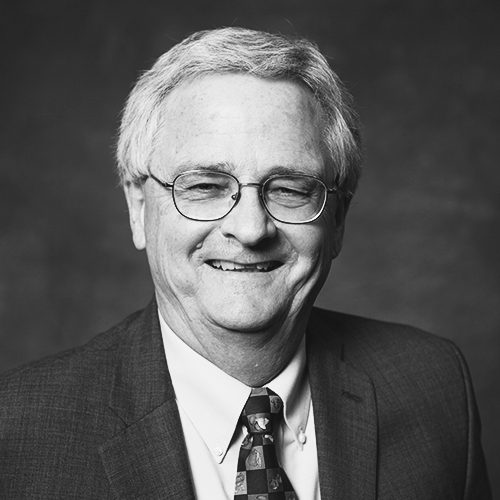
Andrea Ippolito is a Lecturer in the Engineering Management Program at Cornell University and the Founder and Director of Women Entrepreneurs Cornell (W.E. Cornell). Prior to joining Cornell, Andrea served as the Director of the Department of Veterans Affairs Innovators Network within the VA Center for Innovation. Andrea completed her MS in Engineering & Management at MIT. Prior to MIT, Andrea worked as a Research Scientist within the Corporate Technology Development group at Boston Scientific. She obtained both her BS in Biological Engineering in 2006 and Master’s of Engineering in Biomedical Engineering in 2007 from Cornell University.
Peter Jackson is a Professor in the School of Operations Research and Industrial Engineering. Born in Nipigon, Ontario, Canada, he received a B.A. in Economics with Mathematics in 1975 (University of Western Ontario), a M.Sc. in Statistics in 1978 (Stanford University), and a Ph.D. in Operations Research in 1980 (Stanford University). He has served at Cornell since 1980. He is Director of Graduate Studies for, and a former Director of, the Systems Engineering Program within the College of Engineering. He also serves as the Director of Undergraduate Studies for ORIE.
Jackson has published in IIE Transactions, Journal of Manufacturing and Operations Management, Management Science, Mathematical Programming, Mathematics of Operations Research, Naval Research Logistics Quarterly, and Operations Research. Professor Jackson has consulted with several companies in these areas, including Agco, PTC-Servigistics, General Motors, Cleveland Clinic, Xelus, Clopay Building Products, General Electric, Aeroquip, and Quaker Oats. He is the recipient of a General Motors Research and Development Innovation award in 2011 for a business process to optimize retail inventories.
Professor Jackson is also active in educational curriculum development for operations research and systems engineering. He is the recipient of several awards for curriculum innovation in addition to numerous student-voted awards for teaching excellence. He is the author of an introductory textbook to systems engineering, Getting Design Right: A Systems Approach.
Justin P. Johnson received his PhD from MIT and is currently a professor of economics at Cornell University’s Samuel Curtis Johnson Graduate School of Management. He teaches business strategy to the School’s MBA and Executive MBA students.
Professor Johnson is an active and globally renowned researcher in economics and strategy, and a past editor at both the Journal of Industrial Economics and the International Journal of Industrial Organization, top journals in his field. He uses analytic tools from economics and game theory to better understand how firms can succeed in challenging environments, and what strategies they can adopt to either achieve or maintain dominance in markets. Much of his research is motivated by events in high-tech markets, such as older work on open source software and recent work on the business and pricing strategies of web-based resellers of airline tickets, hotel rooms, and other products. More broadly, he is interested in markets where rapid change is taking place and in how firms can survive and thrive in the face of such change.
In addition to his research, academic talks, teaching, and involvement with executive development, Professor Johnson discusses his research and its relevance to current matters of interest with governmental bodies around the world, including the US Department of Justice, the US Federal Trade Commission, the EU Directorate General for Competition, and the UK Competition Authority.
Yong Lak Joo is BP Amoco/H. Laurance Fuller Professor in the School of Chemical & Biomolecular Engineering at Cornell University. He received his B.S. degree at Seoul National University in Korea in 1989, and received his M.S. and Ph.D. in Chemical Engineering at Stanford University in 1993. From 1993 and 1999, he was a senior research engineer at Hanwha Chemical Corporation in Korea. Prior to joining Cornell in 2001, Yong Lak Joo did two years of a postdoctoral research in the Department of Chemical Engineering at MIT.
His research focuses on the integration of molecular details into a macroscopic level in nanomaterials processing. He received a 3M Faculty Award in 2004. He is also a recipient of a National Science Foundation CAREER Award and a DuPont Young Professor Award. He also received an Excellence in Teaching Award in College of Engineering, Cornell University. He is a fellow of American Institute of Chemical Engineers (AIChE).
General George W. Casey, Jr. enjoyed a 41-year career in the U.S. Army following his graduation from Georgetown University’s School of Foreign Service in 1970. He is an accomplished soldier and an authority on strategic leadership. As the Army Chief of Staff, he led one of our largest and most complex organizations during one of the most extraordinary periods in our history. He is widely credited with restoring balance to a war-weary Army and leading the transformation to keep it relevant in the 21st Century. Prior to this, from July 2004 to February 2007, he commanded the Multi-National Force – Iraq, a coalition of more than 30 countries. He guided the Iraq mission through its toughest days and set the conditions for our long-term success.
Currently, he lectures internationally on leadership to the leaders of national and multinational corporations and at other business schools. He serves on several corporate boards and numerous boards of organizations that support our servicemen and women, our veterans, and their families. He also teaches international relations at the Korbel School in Denver.
He has published a book, Strategic Reflections, Operation Iraqi Freedom, July 2004-2007 (October 2012), about his experiences in Iraq, and two articles on leadership: “Leading in a VUCA World”, Fortune Magazine (March 20, 2014), and “Volatile, Uncertain, Complex and Ambiguous: Leadership Lessons from Iraq”, Chapter 1, Changing Mindsets to Transform Security, (December 2013).
He holds a Masters Degree in International Relations from Denver University, and served as a Senior Fellow at the Atlantic Council of the United States, a foreign policy think-tank. He has broad international experience. Born in Japan, he served in operational assignments in Europe, the Balkans and the Middle East.
Ari Juels is a professor at the Jacobs Technion-Cornell Institute at Cornell Tech, a Computer Science faculty member at Cornell University, and Co-Director of the Initiative for CryptoCurrencies and Contracts (IC3). He was previously Chief Scientist at RSA, now a division of Dell.
His recent areas of interest include blockchains, cryptocurrency, and smart contracts, as well as applied cryptography, cloud security, user authentication, and privacy. He has published over one hundred highly cited research papers, including many on digital currency, cryptocurrency, and blockchains.
Prof. Juels received a BA in Latin Literature and Mathematics from Amherst College (1991) and a PhD in Computer Science from UC Berkeley (1996).
Liz Karns is an epidemiologist and lawyer. Her research interests involve worker health and safety, ethical responsibilities in the conduct of data analysis, and the economic consequences of sexual assault and harassment. Her practice has ranged from individual juvenile clients to large multinational corporations. She is interested in fostering an intellectual environment for students that integrates science, law, and societal needs.
Dr. Robert Karpman received his medical degree from the University of Pennsylvania and an MBA from the University of Phoenix, while he was the director of the Phoenix Orthopedic Residency Program. Dr. Karpman has been an entrepreneur for most of his 34 years in the healthcare arena. During his residency in orthopedic surgery, Bob worked with a well known orthopedic company to develop a new device to aid in the healing of fractures. The device was later manufactured and marketed by the company. Later, he received his own patent for a bone screw to aid in the fixation of fractures that occurred in osteoporotic individuals that was later licensed to another orthopedic manufacturer. As a busy clinician, he developed a high quality medical education program in Phoenix, Arizona, performed both clinical and basic science research, wrote a book and many articles in peer review publications.
Following his clinical career, he became a chief medical officer at two community hospitals. Since the summer of 2015, he has devoted most of his time to serving as an adjunct professor in the biomedical engineering department at Cornell and recently has taught a course he developed entitled “Business as a second language: From molecules to moola!” to introduce basic business and managerial skills to graduate science, engineering, and technology majors.
Bob also serves as the director of the Business Minor for Life Science Majors in the Dyson School for Applied Economics and Management, which is part of the SC Johnson College of Business at Cornell University. He was recently appointed to a professor of practice position at Dyson, and also the graduate faculty in applied economics and management. He has added several courses to the curriculum to encourage students in the life Sciences to pursue business and management skills during their undergraduate experience.
He also serves as a mentor in the Blackstone Launchpad Program at Cornell.
Recently, Bob has created a 7-course on-line certificate program as part of eCornell in business and management skills for healthcare professionals. He is the founder and CEO of Geri-Safe, Ltd., a start-up company whose mission is to develop and manufacture innovative technology to improve the safety and well being of elderly individuals.
Harry C. Katz is the Jack Sheinkman Professor of Collective Bargaining at the School of Industrial & Labor Relations, Cornell University. He received his Ph.D. in Economics from the University of California at Berkeley. After teaching at MIT he came to the New York State School of Industrial and Labor Relations at Cornell University in 1985.
After receiving her S.B. (biology) and Ph.D. (management) at the Massachusetts Institute of Technology, Jan Katz began teaching international management at New York University. Moving to Cornell 21 years ago, she continued teaching international management and marketing at the Johnson Graduate School of Management and as of January 2008 at the School of Hotel Administration.
In addition to her teaching in the US, Katz has lectured in Argentina, Peru, Colombia, India, China, Belgium and the U.K. She has trained executives and consulted for a diverse group of corporations including SK Group (Korea), Aegon (Netherlands), Corning (US) and for NGOs, such as the Asian Development Bank (the Philippines) and the Conference Board (US).
Her research focuses on the means used by multinational corporations to create and sustain global competitive advantages through the management of international resources (people, ideas, etc.) and external forces (governmental and non-governmental organizations, culture, etc.).
Mukti Khaire is Girish and Jaidev Reddy Professor of Practice at Cornell Tech and the Cornell SC Johnson College of Business. She received a PhD in Management in 2006 from Columbia University’s Graduate School of Business. Before that, she completed a Masters in Management from Indian Institute of Technology (IIT) – Bombay and a Master of Science in Environmental Science and a Bachelor of Science in Microbiology from the University of Pune, India. Prior to joining Cornell Tech in 2016, she was on the faculty of Harvard Business School (Entrepreneurial Management Unit; 2005-2016) and spent a year as Visiting Faculty in Brown University (Sociology; 2015-2016).
Mukti’s research focuses on entrepreneurship in the creative industries, such as art, advertising, architecture and design, fashion, film, music, publishing, and theater. In particular, she is interested in understanding how entrepreneurs create markets for new categories of cultural goods by constructing their value, while also changing consumers’ beliefs about what attributes of cultural goods are appropriate and valuable. In this vein, Mukti studied the creation of a market for modern Indian art and the rise and establishment of the high-end fashion industry in India. Her work, which has been published in leading business and management journals, has shed light on the structure and functioning of creative industries and the business and societal implications of entrepreneurship in the cultural sector. Mukti has also authored 35 teaching cases on firms in the creative industries.
Sheryl E. Kimes is a professor of operations management at the School of Hotel Administration. From 2005 to 2006, she served as interim dean of the school, and from 2001 to 2005, she served as the school’s Richard and Monene P. Bradley Director of Graduate Studies. Kimes teaches revenue management, restaurant revenue management, and service operations management. She has been named the school’s graduate teacher of the year three times and was awarded a Menschel Distinguished Teaching Fellowship by Cornell University in 2014.
Kimes’s research interests revolve around revenue management in the restaurant, hotel, and golf industries. She has over 100 articles in leading journals, such as Interfaces, Journal of Operations Management, Journal of Service Research, Decision Sciences, and the Cornell Hospitality Quarterly.
She was awarded the CHR Award for Industry Relevance in 2010, 2012 and 2014 and was given a lifetime achievement award by the Production and Operations Management Society in 2010.
Kimes has served as a consultant to many hospitality enterprises around the world, including Chevy’s Fresh Mex Restaurants, Walt Disney World Resorts, Fairmont Hotels and Resorts, Starwood Asia-Pacific, and Troon Golf. She was given the Vanguard Award for Lifetime Achievement in Revenue Management by the Hotel Sales and Marketing Association International in 2017.
Kimes earned her doctorate in operations management in 1987 from the University of Texas at Austin.
Sally Klingel is the director of labor-management relations programming for the Scheinman Institute, where she teaches, trains and provides organizational change consulting services to labor and management groups nation-wide. She specializes in the design and implementation of conflict and negotiation systems, labor-management partnerships, work redesign, strategic planning and change processes, and leadership development. Her work with Cornell over the past fifteen years has included training, consulting, and action research with organizations in a variety of industries, local, state and federal government agencies, union internationals and locals, public schools and universities, and worker owned companies.
Sally holds a M.S. in Organizational Behavior from Cornell University’s School of Industrial and Labor Relations, and a B.A. from the University of Michigan. She has authored articles, monographs and book chapters on innovations in labor-management relations. She is currently a PhD candidate at the Norwegian University of Science and Technology, writing a dissertation on labor-management strategies for change in municipal work organizations.
Marianne Krasny is a Professor and Director of the Civic Ecology Lab in the Department of Natural Resources at Cornell University, specializing in community environmental stewardship and environmental education in urban and other settings in the US and internationally.
Sarosh Kuruvilla is currently Professor of Industrial Relations, Asian Studies and Public Affairs at Cornell University. He joined Cornell’s faculty in 1990 after obtaining a doctorate in business administration from the University of Iowa in 1989, and after a career as a labor relations manager in the industry in India. He currently directs the New Conversations Project: Sustainable Labor Standards In Global Supply Chains.
Rob Kwortnik, associate professor of services marketing, joined Cornell’s faculty after earning his Ph.D. in Business Administration from Temple University in 2003. He also earned a BA in Journalism from Temple and an MBA from California State University, Northridge. Kwortnik’s research focuses on consumer behavior in service contexts, with special attention to service experience management. He has published in the Journal of Marketing Research, Journal of Service Research, The International Journal of Research in Marketing, and the Cornell Hospitality Quarterly, among others. He has been honored eight times as a Teacher of the Year by students at The Hotel School. Prior to his career in academics, Kwortnik held several professional positions in marketing and was a travel industry consultant. He is a recognized expert on the leisure cruise industry.
As a health disparities researcher, I conduct interventions that address socioeconomic and environmental influences on food choices, while drawing upon my expertise in mixed methods and community-based research. More specifically, I design innovative and culturally relevant interventions that aim to improve dietary behaviors among impoverished, minority youth that reside in urban communities. Thus, my research lies at the intersection of poverty, race/ethnicity, nutrition, and health (e.g., obesity and type 2 diabetes). Understanding and intervening on health disparities is complex and requires a multidisciplinary approach. As such, the majority of my research involves collaborators from diverse training backgrounds (e.g., economics, sociology, food science, business marketing, technology, etc.). I am deeply committed to conducting research that informs public health programming and policy. As such, the majority of my research studies have a clearly identified plan for translation from the very beginning.
Professor Clarence Lee is an assistant professor at the Johnson Graduate School of Management, where he is a Breazzano Family Sesquicentennial Fellow. Professor Lee’s research examines the drivers behind consumer adoption, usage, and purchase dynamics of digital goods, where he models consumer behavior using Bayesian statistics, structural econometrics, and machine learning techniques. Digital products and platforms, such as the ones produced by many Silicon Valley and NYC tech start-ups, are increasingly present in almost all consumer interactions. In such settings, understanding consumer choice and the dynamics of engagement and usage become critically important in order to acquire, serve, and retain consumers. He currently teaches Digital Marketing and Data Analytics & Modeling at both the Ithaca and Cornell Tech campuses.
Professor Lee received his doctorate from Harvard Business School and holds undergraduate and graduate degrees in electrical engineering and computer science from MIT. Prior to pursuing graduate studies, he has conducted nanotechnology research at IBM and space system design at MIT Lincoln Laboratory.
Aija Leiponen is a Professor in the Dyson School of Applied Economics and Management at Cornell University (U.S.) and is also affiliated with Aalto University in Helsinki, Finland. Her research focuses on organizational strategies in innovation, particularly cooperation between organizations. She has studied the organization of innovation through interorganizational contracts, organizational structures at the firm level, and interorganizational networks of repeated collaborative innovation, particularly in digital industries. Her recent work has examined the interaction between conflict and cooperation in wireless telecommunication standard development and the nature and implications of markets for big data.
Professor Leiponen’s research has been published in leading management and applied economics journals such as Management Science, Strategic Management Journal, Organization Science, Research Policy, Journal of Economics and Management Strategy, and International Journal for Industrial Organization.
Gilly Leshed is a Senior Lecturer in the Department of Information Science at Cornell University. Her research and teaching interests are in Human-Computer Interaction (HCI) and Computer-Supported Cooperative Work (CSCW). She also serves as the Director of the MPS program in Information Science.
Dr. Leshed received her Ph.D. at Cornell in Information Science in 2009. Her Bachelor’s and Master’s degrees are from the Technion – Israel Institute of Technology in Industrial Engineering and Information Management Engineering, respectively. She also worked several years in the industry as an HCI expert for commercial flight-deck avionics systems as well as command and control systems for military purposes.
Received all degrees from Rutgers University. Arrived at Cornell in 1968 as Post-Doctoral Fellow for two years before becoming an Assistant Professor. I have been a full professor since 1986.Throughout my professional life I have been studying the control of food intake and regulation of body weight. I love both teaching and research.
Tasha Lewis, PhD., is an Associate Professor in the Department of Fiber Science & Apparel Design and teaches in the area of fashion design management. Her research interests include the disruptive impact of technology in the apparel industry, the behavior of fashion brands, global and domestic apparel production (“glocalization”) issues, and the significance of social responsibility and sustainability throughout the apparel supply chain. Dr. Lewis has also worked in the apparel industry in areas of production, sourcing, and retail operations and maintains ongoing contact with industry professionals to inform her research. She is a faculty fellow of Cornell’s Atkinson Center for a Sustainable Future, Engaged Cornell and the Cornell Institute of Fashion and Fiber Innovation. Dr. Lewis also serves as a member of the editorial board for the Journal of Fashion, Style and Popular Culture.
I am an assistant professor in Human Resource Studies, with teaching interests in HR and Staffing, and research interests in gender, stereotyping, and the management of work and family. Originally from Kentucky, I began my education at big state schools in the south before joining the faculty in ILR. The college’s appreciation of combining the world of work with social science research and practice is a perfect place to grow rewarding relationships with faculty, practitioners, and students alike.
I am married with a preschool-aged daughter, a golden retriever, and two cats. In my spare time, I enjoy CrossFit, watching basketball, reading (primarily novels of a non-academic bent), and participating in the Ithaca community.
Elizabeth Lloyd-Richardson, Ph.D., is an Associate Professor of Psychology at the University of Massachusetts Dartmouth and an Adjunct Associate Professor of Psychiatry and Human Behavior at the Warren Alpert Medical School of Brown University. Elizabeth is a licensed Clinical Psychologist, trained in the Boulder clinical-researcher model, with specialized training in Health Psychology and adolescent health risk behaviors. She has extensive experience in developing and conducting treatments that promote healthful behaviors in adolescents and young adults, particularly in the areas of weight loss, physical activity, smoking cessation, and non-suicidal self-injury. Elizabeth is the recipient of several research grants and has published over 40 papers and book chapters on these topics. She maintains an active clinical research lab with graduate and undergraduate students, with a particular interest in involving students in meaningful community-based research projects.
Marla Lujan received her Master of Science and Doctor of Philosophy in Physiology from Queen’s University (Kingston, Ontario). She conducted her postdoctoral studies in Obstetrics, Gynecology and Reproductive Sciences at the University of Saskatchewan prior to joining the Division of Nutritional Sciences at Cornell in 2008.
Her group investigates the link between nutrition, metabolism and fertility in women. Specific interests include understanding mechanisms that lead to loss of regular menstrual cycles (amenorrhea) in women as well as improving the diagnosis and treatment of polycystic ovary syndrome – a condition of impaired fertility that is tightly linked to insulin resistance and excess male hormone production. Her group uses high-resolution ovarian ultrasonography to charcterize follicle development during natural cycles in women with variable reproductive potential and metabolic status across the lifespan. By understanding mechanisms that govern amenorrhea, the goal of her laboratory is to develop nutritional, lifestyle and pharmaceutical regimens that promote and preserve reproductive health in women.
Patti Mandel is a visiting lecturer with the Charles H. Dyson School of Applied Economics and Management, where she teaches Branding and Brand Management. She is also an assistant professor of marketing in the Anisfield School of Business at Ramapo College of New Jersey, where she teaches Marketing Principles and Practices, Consumer Behavior, Advanced Topics in Marketing, and Branding. Prior to this, Patti taught Contemporary Business Practices and Managerial Marketing at the Lubin School of Business at Pace University.
Ms. Mandel has significant work experience in the industry with a strong record of business development and branding programs that produce growth and profitability. She has taken brands from concept to launch to the number one position in their category, developed best practice business models, led category portfolios, and worked on global teams. Ms. Mandel is known for her strong brand and marketing expertise, including business analytics, P&L management, development of strategic marketing plans, and integrated marketing programs.
Professor Mannix’s research and teaching is focused on effective organizational performance, and the factors that make individuals motivated, high-performing leaders and team members. Specific topics include: Authentic leadership, principled negotiation and influence, the role of emotional intelligence in business settings, organizational change, women in leadership and diversity. She is certified in the MSCEIT emotional intelligence assessment. Professor Mannix is the author of over 50 peer reviewed articles, as well as the 15 volume book series, Research on Managing Groups and Teams. Her work has been recognized by awards from organizations including the Academy of Management, Small Group Research, and the International Association for Conflict Management.
Professor Mannix teaches and consults with Executives and organizations nationally and from around the globe, with a special emphasis on the Middle East and Asia. She is a two-time Associate Editor of the Academy of Management Review, as well as a Fellow of the American Psychological Society, the Society for Organizational Behavior, and the Academy of Management. Mannix earned her Ph.D. degree in Social and Organizational Psychology from the University of Chicago. Prior to joining the faculty at Cornell, she was a faculty member at Columbia Business School and at the University of Chicago. She was also a visiting professor in the MBA program at the Sasin Graduate Institute of Business Administration at Chulalongkorn University in Bangkok, Thailand.
Dr. Mansfield first worked in the wine industry as a college student in North Carolina. In an effort to expand her understanding of wine technology, she earned graduate degrees in Food Science at Virginia Tech and the University of Minnesota, studying wine flavor chemistry and sensory science. She spent a sabbatical leave at the l’Institut Universitaire de la Vigne et du Vin Jules Guyot at the University of Burgundy, where she learned a lot about wine corks and François Rude while confounding more than one Bourguignon with her sketchy French.
Now irredeemably entrenched in academia, Anna Katharine focuses her efforts on aiding regional wineries through enology extension and applied research on wine production processes. Her research interests include tannin extraction and retention in red wines, anthocyanin development, the effect of protein on sparkling wine foam, and defining regional identity in developing wine-growing areas. She really digs the science but still thinks teaching wine sensory evaluation is one of the best ways to spend her time.
Elizabeth Martyn has extensive experience in the luxury and ultra-luxury travel and guest services industry. Her past responsibilities have included managing operations, employee training and development, and creating full-service travel and accommodation experiences both domestically and internationally. Elizabeth is the author of the online Service Excellence On-Demand Training program. She is a former undergraduate-core-curriculum instructor at the Cornell University School of Hotel Administration. Elizabeth holds a bachelor’s degree in hotel administration from Cornell University.
John Mathiason is Adjunct Professor at CIPA. He is also Managing Director of Associates for International Management Services, a consulting company providing advice and training to international organizations and not-for-profit institutions on results-based management planning and evaluation, including the United Nations Development Group, the United Nations Division for Social Policy and Development, the Food and Agriculture Organization of the UN, the International Atomic Energy Agency, the Comprehensive Test Ban Treaty Organization, the United Nations Office for Internal Oversight, the United Nations Development Programme, the United Nations Office on Drugs and Crime, the United Nations Convention to Combat Desertification, the World Meteorological Organization, the International Labour Organization, the Office of the High Commissioner for Human Rights, the International Social Science Council, the AARP, Disabled People’s International, the SSM Foundation of the Dominican Republic, the Ministry of Family, Youth and Children of the Government of Panama, the Equal Opportunity Commission of Hong Kong, the United Nations Development Programme in Ecuador, Architecture for Humanity in Haiti, the Swedish International Development Cooperation Agency and the Club of Madrid. He was the team leader of the Independent External Evaluation of the ILO Evaluation Function that was considered by the ILO Governing Body in November 2010 and team leader of the review of the Management and Accountability System of the United Nations Development System in 2011. He was the lead external consultant to support the Intersessional Working Group of the UN Convention to Combat Desertification in the mid-term evaluation of the UNCCD Strategy (2008-2018). He is a member of the External Evaluation Panel of the European Bank for Reconstruction and Development and leader of the external reviews of evaluations by the United Nations Fund for Population Activities (UNFPA) and the United Nations Office on Drugs and Crime (UNODC), the assessment of the evaluations of evaluations of UNICEF, and was consultant to the Organization for Security and Cooperation in Europe (OSCE) on performance measurement.
He was a staff member of the United Nations Secretariat for thirty years, starting as a technical assistance expert in evaluation of agrarian reform programs and in his last ten years as Deputy Director of the Division for the Advancement of Women, responsible for managing support to negotiations leading up to the Fourth World Conference on Women including involvement of NGOs. He has taught and written extensively on international governance issues, including governing the Internet, where he has been a member of the Internet Governance Project, and effective management of international arms control verification regimes. He is co-author of a book on the Elimination of Weapons of Mass Destruction: Prospects for Effective International Verification, published by Palgrave in March 2005, Invisible Governance: International Secretariats in Global Politics published by Kumarian Press in January, 2007 and Internet Governance: The New Frontier of Global Institutions by Routledge in 2008. He analyzes the General Assembly in the Annual Review of UN Affairs, published by Oxford University Press. He was an Adjunct Professor of Public Administration at the Wagner Graduate School of Public Administration at New York University and later was Professor of International Relations at the Maxwell School of Citizenship and Public Affairs of Syracuse University. He is an editor-in-chief of the Journal of International Organizations Studies. He has a Ph.D. in Political Science from the Massachusetts Institute of Technology.
Reneta McCarthy has both teaching and practical experience in hotel operations. She began her career at Marriott International, where she worked as a housekeeping manager and then as director of services in the full-service hotel division. She later transferred to Courtyard Hotels, by Marriott, where she became one of the youngest general managers of a Courtyard property. She became director of rooms at The Statler Hotel at Cornell in 1992 and joined The Hotel School faculty in 1995, where she teaches courses in hotel and casino operations. She is the faculty advisor to Hotel Ezra Cornell (HEC), an annual, student-run industry conference that attracts 300 hospitality leaders to campus each spring.
Dan McCray is a lecturer at Cornell University. He is an expert in workplace negotiation, mediation, and arbitration. As Practice Leader and Director of the Labor Relations Programs, Dan is responsible for developing and teaching professional education programs in negotiations, conflict resolution, collective bargaining for professionals working for unions and employers in the United States, Europe, and Latin America.
Dan has taught and facilitated dozens of management and union teams, with a particular emphasis on developing and executing an effective negotiating strategy and the skills of an effective negotiator.
Sumner McRae works in the Center for Collective Bargaining with the AFT’s Research and Strategic Initiatives department, where she provides support to locals in contract negotiations, as well as training to affiliates on fiscal analysis, costing of salary and benefits, and contract language. McRae is also involved in the AFT’s work on labor management and collaboration and educator workplace stress, including coordination of the biennial Educator Quality of Work Life survey.
I am a physician and an epidemiologist with expertise in infectious disease, nutrition, maternal and child health, and diagnostics. The central theme of my research is the interplay between nutrition and infection, including facilitating field-friendly assessment for both, and elucidating how nutrition can be used as a modifiable risk factor for infections and associated outcomes, often in the context of pregnancy and early childhood. This is achieved through a combination of active surveillance programs, invention of point-of-care diagnostics for nutrition and infection, and randomized controlled trials primarily in resource-limited settings in India, Sub-Saharan Africa, and Latin America.
I am currently the Principal Investigator on two large randomized efficacy trials to determine the effect of delivering micronutrients through biofortified crops on nutrition and immune function in infants in India. David Erickson and I are also the co-inventors of the Cornell NutriPhone and FeverPhone, a NSF- and NIH-funded platform for point-of-care diagnosis of nutritional status and infections. In Ecuador, I have been focusing on neglected tropical diseases such as dengue virus infection and am currently the Principal Investigator on an NIH R01 focusing on the development of FeverPhone for differential diagnosis of acute febrile illnesses.
I also serve as a consultant to the World Health Organization on topics such as tuberculosis, nutrition, and diagnostic test accuracy. This also involved recently serving as the external expert on Emergency Guideline Development Meeting for Zika virus and publishing the first systematic review on mother to child transmission of Zika virus, that served as the basis for the current guidelines on this topic.
Douglass Miller has over 30 years of industry experience in restaurants, hotels, resorts, and education. He has worked around the country, including Las Vegas, San Francisco, New York City, Hawaii, Santa Barbara, Philadelphia, and Washington DC, for organizations such as Four Seasons Resorts and Hotels, Wyndham Hotel, Marriott, and several independent companies. He is a graduate of the Culinary Institute of America (CIA), SUNY Empire State College, and University of Nevada, Las Vegas, where he holds a Master’s of Hospitality Administration. Currently, he is a lecturer in food and beverage management at the SC Johnson College of Business, School of Hotel Administration (SHA). Before Cornell University, he was a professor of hospitality and service management at the CIA. Doug is a Certified Specialist of Spirits (CSS), Society of Wine Educators; Certified Beer Server, Cicerone; and has taken the Introductory Sommelier Course; The Court of Master Sommeliers. He has spoken at several conferences including Tales of the Cocktail, Craft Brewers Conference, Great American Beer Festival, and Menus of Change.
Doug has also been interviewed by the Associated Press, The New York Post, The Wall Street Journal, Nation’s Restaurant News, and has had cocktails published in Liquor.com, USA Today Magazine, and AOL. He was a content provider and consultant on the CIA’s book, Remarkable Service: A Guide to Winning and Keeping Customers for Servers, Managers, and Restaurant Owners.
Risa Mish is professor of practice of management at the Johnson Graduate School of Management. She designed and teaches the MBA Core course in Critical and Strategic Thinking, in addition to teaching courses in leadership and serving as faculty co-director of the Johnson Leadership Fellows program.
She has been the recipient of the MBA Core Faculty Teaching Award, selected by the residential program MBA class to honor the teacher who “best fosters learning through lecture, discussion and course work in the required core curriculum”; the Apple Award for Teaching Excellence, selected by the MBA graduating classes to honor a faculty member who “exemplifies outstanding leadership and enduring educational influence”; the “Best Teacher Award”, selected by the graduating class of the Cornell-Tsinghua dual degree MBA/FMBA program offered by Johnson at Cornell and the PBC School of Finance at Tsinghua University; the Stephen Russell Distinguished Teaching Award, selected by the five-year MBA reunion class to honor a faculty member whose “teaching and example have continued to influence graduates five years into their post-MBA careers”; and the Globe Award for Teaching Excellence, selected by the Executive MBA graduating class to honor a faculty member who “demonstrates a command of subject matter and also possesses the creativity, dedication, and enthusiasm essential to meet the unique challenges of an EMBA education.”
Mish serves as a keynote speaker and workshop leader at global, national, and regional conferences for corporations and trade associations in the consumer products, financial services, health care, high tech, media, and manufacturing industries, on a variety of topics, including critical thinking and problem solving, persuasion and influence, and motivating optimal employee performance. Before returning to Cornell, Mish was a partner in the New York City law firm of Collazo Carling & Mish LLP (now Collazo Florentino & Keil LLP), where she represented management clients on a wide range of labor and employment law matters, including defense of employment discrimination claims in federal and state courts and administrative agencies, and in labor arbitrations and negotiations under collective bargaining agreements. Prior to CC&M, Mish was a labor and employment law associate with Simpson Thacher & Bartlett in New York City, where she represented Fortune 500 clients in the financial services, consumer products, and manufacturing industries. She is admitted to practice before the U.S. Supreme Court and state and federal courts in New York and Massachusetts.
Mish is a member of the board of directors of SmithBucklin Corporation, the world’s largest trade association management company, headquartered in Chicago and TheraCare Corporation, headquartered in New York City. She formerly served as a Trustee of the Tompkins County Public Library, Vice Chair of the board of directors of the Community Foundation of Tompkins County, and member of the board of directors of the United Way of Tompkins County.
Malden C Nesheim is Professor of Nutrition Emeritus and Provost Emeritus. He joined the Cornell faculty in 1959. In 1974 he was named Director of the Division of Nutritional Sciences, a post which he held until the summer of 1987. Prior to becoming Provost of Cornell University in September 1989, he held the position of Vice President for Planning and Budgeting. As Provost, Dr. Nesheim was the chief educational officer of the University under the President and was responsible for overseeing all academic programs other than those at the New York Hospital-Cornell Medical Center.
He has received the Conrad A. Elvehjem Award for public service from the American Institute of Nutrition and in 1995 was elected to the American Academy of Arts and Sciences. He was elected a fellow of the American Society of Nutritional Sciences in 1997.
He earned a B.S. in agricultural science and an M.S. in animal nutrition from the University of Illinois followed by a Ph.D. in nutrition from Cornell. His research interests have been aspects of nutritional biochemistry and more recently, the relationship of parasitic infections to nutritional status.
Amy Newman is a senior lecturer of management communication at the Cornell SC Johnson College of Business, School of Hotel Administration. She teaches courses in business writing, persuasive communication, organizational behavior, and corporate communication. Newman is author of Business Communication: In Person, In Print, Online (Cengage, 10e) and Building Leadership Character (Sage, 2018). Prior to joining Cornell, she was an adjunct instructor at Ithaca College, eCornell, and Milano, The New School for Management and Urban Policy in New York City. Newman spent most of her career in corporate positions and external consulting roles. Internally, she held management positions in human resources and leadership development. As an external consultant, Newman worked to improve employee performance and communication in hospitality, technology, education, publishing, financial services, and entertainment companies. Newman has won grants to develop technology-based learning solutions and awards for teaching excellence and student advising. She is a director-at-large for the Association for Business Communication.
Experienced upper manager and change agent with an outstanding track record of delivering organization development, business growth, and management at providers of technology, capital equipment, consumables, and support services at world-leading engineering focused organizations. Successfully managed the integration of teams following four acquisitions, performed a very successful business turn around, and drove seven years of dramatic growth at a start-up.
Formerly CEO of MiTeGen, a small bio-tech manufacturing company. Prior to that served as COO of AeroFarms LLC, a start-up company providing capital equipment for controlled environment agriculture; Business Manager of Service and Customer Support at Mettler Toledo Hi-Speed, North America’s leading manufacturer of checkweighers and integrated product inspection solutions; and as Vice President of Customer Support and Implementation at Moldflow Corp., the global leader in CAE for polymer processing, hot runner controllers, and related injection molding and production monitoring equipment.
Education
- Undergraduate Degrees, Embry-Riddle Aeronautical University
- MBA in International Management, Baker College
Sean is a professor in the Department of Policy Analysis and Management (PAM) at Cornell University, the Director of the Sloan Program in Health Administration, and a Research Associate at the National Bureau of Economic Research. Prior to joining the PAM Department in 2004, Sean was a faculty member in the Health Care Systems Department at The Wharton School of the University of Pennsylvania. Sean worked for four years as a management consultant with APM and taught high school for two years before enrolling in graduate school. He received a B.A. from Dartmouth College in 1986 and a Ph.D. in economics from the University of Wisconsin-Madison in 1997.
Lisa Nishii joined the faculty of the Human Resource Studies department at the ILR School, Cornell University after receiving her Ph.D. and M.A. in Organizational Psychology from the University of Maryland, and a B.A in economics from Wellesley College.
Nishii is an expert on inclusion in organizations. Her research focuses on the confluence of organizational practices, leadership behaviors, and climate for inclusion on individual- and group-level outcomes. Using multi-level and multi-method research designs across a number of large-scale federally funded projects, she has found that leaders play an important role in shaping inclusion. In particular, the extent to which leaders role model inclusive behaviors, clarify the learning and innovation benefits of diversity for the group’s work, and set strong norms related to interpersonal interactions, determines the inclusiveness of their workgroup climates. In turn, workgroup climate has important implications for the authenticity of the relationship that group members develop, the positive versus negative quality of relational ties, the information that is shared among group members, the extent of conflict that is experienced, and ultimately the creativity, financial performance, and turnover rates associated with these groups. Workgroup climate also impacts individual-level experiences of discrimination versus inclusion, as well as engagement and performance. She is currently developing and testing the effectiveness of training interventions for leaders as well as for in-tact teams on how to cultivate workgroup inclusion. Nishii’s earlier research focused primarily on diversity in individual-level cognition and behavior as determined by national culture.
Nishii actively publishes in top-tier journals, including the Academy of Management Review, Academy of Management Journal, Journal of Applied Psychology, Personnel Psychology, and Science, and serves on the editorial boards for AMR, AMJ, and JAP. She is currently the Chair of the Academy of Management’s Gender and Diversity in Organizations Division, and the Chair of the ILR School’s International Programs. She serves on a variety of college and university-level councils for diversity, globalization, and engaged learning. Nishii also consults with multinational companies, primarily related to diversity and inclusion and organizational assessment.
A graduate of the Johnson MBA program, Professor Angela Noble-Grange is a senior lecturer of management communication at Johnson. She teaches oral communication and management writing. Her interests include persuasive speaking and writing, as well as gender and race differences in message perception. She was the founding director of the Office for Women and Minorities in Business (now ODI) in 1999 and president of the Noble Economic Development Group, a micro enterprise development consulting company, from June 1994 to January 1999. Professor Noble-Grange has served on numerous boards and is currently a trustee for Paul Smith’s College in the Adirondacks. She earned her BA in communication studies and Russian in 1983 and her MBA from Johnson in 1994.
Katrina Nobles is the Director of Conflict Programs for the Scheinman Institute on Conflict Resolution at the Cornell University School of Industrial and Labor Relations, focusing on educating the next generation of neutrals and practitioners on campus and in the workplace. Nobles designs curriculum, instructs professional programs, and facilitates discussions for organizational workplace conflicts. She also teaches the Campus Mediation Practicum, an on-campus credit course that applies mediation skills to the campus judicial system, allowing students to work as peer mediators. Nobles has presented at national conflict resolution conferences on Facilitating Collaborative Problem Solving, Cross-Cultural Communication, and Conflict Diagnosis. In addition to her position at Cornell, she facilitates for the Global Nomads Group, bringing together, through video conference, K-12 students in the United States and Middle East/North Africa region. She has practiced mediation for over 10 years, and prior to her employment at Cornell, Katrina was the Cortland County Coordinator for New Justice Mediation Services. During that time, Nobles mediated hundreds of community, child custody/visitation, child support, and family disputes. Katrina holds a master’s degree in Conflict Analysis and Engagement from Antioch University Midwest.
Dr. Linda Nozick is Professor and Director of Civil and Environmental Engineering at Cornell University. She is a past Director of the College Program in Systems Engineering, a program she co-founded. She has been the recipient of several awards including a CAREER award from the National Science Foundation and a Presidential Early Career Award for Scientists and Engineers from President Clinton for “the development of innovative solutions to problems associated with the transportation of hazardous waste.” She has authored over 60 peer-reviewed publications, many focused on transportation, the movement of hazardous materials and the modeling of critical infrastructure systems. She has been an associate editor for Naval Research Logistics and a member of the editorial board of Transportation Research Part A. She has served on two National Academy Committees to advise the US Department of Energy on renewal of their infrastructure. During the 1998-1999 academic year she was a Visiting Associate Professor in the Operations Research Department at the Naval Postgraduate School in Monterey, California. Dr. Nozick holds a B.S. in Systems Analysis and Engineering from the George Washington University and a M.S.E and Ph.D. in Systems Engineering from the University of Pennsylvania.
Drew Pascarella is a lecturer of finance at the Samuel Curtis Johnson Graduate School of Management at Cornell University, where he currently leads the Investment Banking Immersion program and is the faculty director of the Fintech Intensive. In addition, Mr. Pascarella has taught Core Finance, Mergers and Acquisitions (Executive MBA level), Investment Banking Essentials (undergraduate level), and Lectures in Finance. Mr. Pascarella is also heavily involved with executive education initiatives, working with global corporate clients on finance hard skills and Fintech training. Mr. Pascarella was the 2014 recipient of the Class of 1992 Apple Award for Teaching Excellence.
Prior to his arrival at Johnson in 2012, Mr. Pascarella spent 15 years working at bulge bracket investment banks. Mr. Pascarella has advised clients on over $35bn of merger and acquisition transactions and led equity, convertible, and debt financing transactions totaling over $9bn in proceeds. Most recently, Mr. Pascarella was a director in the Technology Investment Banking group at Citi. Notable transactions include the formation of Nokia Siemens Networks (largest JV in corporate history), Nokia’s $8.1bn acquisition of NAVTEQ (largest acquisition by a Finnish corporate) and associated €1.75bn debt IPO, Andrew Corporation’s $2.6bn sale to Commscope, Lucent’s $1.625bn convertible bond offering, and sale of multiple private businesses to Cisco. While at Citi, Mr. Pascarella was an active participant in the Investment Banking Associate Training Program, developing and delivering hard and soft skills courses. Prior to joining Citi, Mr. Pascarella was a technology project manager at Goldman Sachs, where he led the design, development, implementation, and support of global trading technology systems.
In addition to his duties at Johnson, Mr. Pascarella is managing director and head of East Coast Banking of Vista Point Advisors.
Mr. Pascarella holds an MBA from Cornell University and a BBA in computer information systems from James Madison University.
Rafael Pass is a Professor at Cornell Tech and in the Computer Science Department at Cornell University. He obtained his bachelor’s in Engineering Physics and a master’s in Computer Science, both from the Royal Institute of Technology (KTH) in Sweden, and his Ph.D. in Computer Science from the Massachusetts Institute of Technology (M.I.T.) in 2006. He has been on the faculty of Cornell University since 2006 and joined Cornell Tech in 2013. Professor Pass’ research interests are in the field of Cryptography and its interplay with Computational Complexity and Game Theory. Previously, Pass worked in the finance industry for J.P. Morgan and Price Waterhouse Coopers, and studied logic and philosophy at the Sorbonne in Paris. He is a recipient of the NSF Career Award, the AFOSR Young Investigator Award, the Alfred P. Sloan Fellowship, and the Microsoft Faculty Award.
Barry Perlus is an artist and educator who employs photography and digital imaging in his artistic practice. His work embodies a keen interest in observation and interpretation, using elements of scale, perspective, light, color, and abstraction to create new interpretations.
In recent projects, Perlus has been using panoramic imaging techniques as a departure from conventional pictorial space. With this approach, he developed a multimedia website about the large-scale astronomical observatories built in India by Jai Singh in the early 18th century. His long-standing interest in science has been an influence on other projects, including a current exploration of deep forest spaces at night.
Perlus received his M.F.A. in photography from Ohio University in 1984 and B.A. Undergraduate Scholar from Case Western Reserve University in 1972.
Dr. Julie Stafford has been a faculty member of the Department of Food Science and the Cornell Institute for Food Systems (CIFS) of Cornell University since 2014, serving as an Extension Associate and the Industry Liaison Officer with responsibility for establishing the CIFS industry partnership program. Previously, she served as Principal of Hygeia Consulting Group, LLC, a management consulting firm, serving Fortune 500 companies in the healthcare sector and held positions of increasing management responsibility at a global pharmaceutical company, where she led re-engineering of the research process for the market introduction of new products. Dr. Stafford’s areas of expertise include strategy formulation, the application of systems thinking and simulation, and leveraging information from diverse perspectives to formulate executable, impactful solutions. She has extensive experience operating effectively among multiple stakeholders to help achieve common goals and prioritized objectives. Dr. Stafford holds a Ph.D. in Developmental Psychology from the University of Southern California. She has served on various community boards and institutional committees in NY, NJ and PA.
Ellen Gallin Procida is currently the Associate Director of Labor – Management Programs for Cornell University’s Scheinman Institute, ILR School. She teaches Contract Interpretation, Agreement Writing, Effective Discipline, Collective Bargaining, Arbitration Advocacy, Cross Examination and other classes.
Prior to taking on this role, Ms. Gallin Procida taught in the New York City public school system for 20 years. During that time she also worked after school for the UFT Grievance and Arbitration Department. Ellen Gallin Procida became a full time member of the UFT Grievance and Arbitration Department staff and then its Director for 8 years before retiring as of January 1, 2019. As the Director of the UFT’s Grievance Department – and the first woman to hold this important post – Ellen advocated or supervised more than 1,000 arbitrations. Ellen was the lead advocate on numerous arbitrations that had significant impact on the operation of the New York City Public School System. As part of her work in the Grievance and Arbitration Department, Ellen has been training UFT members to be arbitration advocates for more than 20 years. She helped negotiate and implement various expedited arbitration procedures and dispute resolution processes where labor management teams at various levels attempt to resolve issues as the steps prior to arbitration.
Amongst her responsibilities as Assistant to UFT President Michael Mulgrew, Ellen was a key member of the UFT Collective Bargaining team and has assisted in the planning, preparation and implementation of the AFT/Cornell Scheinman Institute Collective Bargaining Partnership since its inception.
Pedro Pérez is Senior Lecturer of Applied Economics and Management at the Charles H. Dyson School of Applied Economics and Management. He has taught large-format introductory courses to business management and entrepreneurship at Cornell since 2001. He has degrees in chemical and industrial engineering, as well as an MBA and a Ph.D. in management.
Andrew Quagliata is a lecturer in management communication at the Cornell School of Hotel Administration. He teaches a first-year business communication course, an upper-level persuasive communication class, and Communication for Entrepreneurs. He is the faculty sponsor of the Leland C. and Mary M. Pillsbury Institute for Hospitality Entrepreneurship Annual Pitch Deck Competition.
Quagliata holds a PhD in organizational communication from the University at Buffalo. His research interests include communication pedagogy, entrepreneur communication, and the relationship between communication and career success.
He has held professional positions in finance and higher education.
Vithala R. Rao, PhD., is the Deane W. Malott Professor of Management and Professor of Marketing and Quantitative Methods at the Samuel Curtis Johnson Graduate School of Management. He holds master’s degrees in mathematical statistics from the University of Bombay and in sociology from the University of Michigan, and a PhD in applied economics and marketing from the Wharton School of the University of Pennsylvania.
He has published over 135 papers on several topics including conjoint analysis and multidimensional scaling, pricing, bundle design, brand equity, market structure, corporate acquisition, and linking branding strategies to financial performance. His current work includes competitive bundling, diffusion of attribute information for new products, and trade promotions. His papers have appeared in the Journal of Marketing Research, Marketing Science, Management Science, Journal of Marketing, and Journal of Consumer Research, among others.
In addition to his 2004 book, Applied Conjoint Analysis, he is the co-author of Applied Multidimensional Scaling, Decision Criteria for New Product Acceptance and Success, and Analysis for Strategic Marketing. He also edited a volume of research papers entitled, Handbook of Pricing Research in Marketing.
Dr. Kathleen M. Rasmussen is the Nancy Schlegel Meinig Professor of Maternal and Child Nutrition in the Division of Nutritional Sciences and International Professor of Nutritional Science at Cornell University. She received her AB degree from Brown University in molecular biology and both her ScM and ScD degrees from Harvard University in nutrition. Professor Rasmussen is internationally known for her research on maternal and child nutrition. Her research has included studies in experimental species, observational and intervention studies in human subjects in the US and several developing countries, and epidemiologic studies based on data from medical records and large cohorts. She and her students have established that interventions to improve maternal nutritional status can increase the volume and improve the composition of human milk and, thereby, improve infant nutritional status. They have also shown that women who are overweight or obese at conception have problems establishing and maintaining breastfeeding and have babies who are heavier at one year of age than those of normal-weight women. In addition, they have shown that there is a trade-off between meeting the needs of the pregnant or lactating mother and the needs of her fetus/breastfed infant, respectively. Most recently, her students have explored many aspects of the process of using human milk expression to meet breastfeeding goals.
Professor Rasmussen has been a member of several expert committees at the Institute of Medicine. She served as the chair of the Committee on Reexamination of IOM Pregnancy Weight Guidelines, and more recently as the Chair of the Committee to Review WIC Food Packages. Her research was recognized by the Agnes Higgins Award of the American Public Health Association in 2012 and the Macy-Gyorgy Award of the International Society for Research on Human Milk and Lactation in 2016. She the Conrad A. Elvehjem Award for Public Service in Nutrition from the American Society for Nutrition in 2017.
Professor Rasmussen has served as program director for two NIH-sponsored training grants in maternal and child nutrition. She teaches a nationally recognized course in maternal and child nutrition for graduate students that supports these training grants. She also teaches a unique course on public health nutrition for undergraduate students. In 2006, she was the first recipient of the Excellence in Nutrition Education Award from the American Society for Nutrition. Continuing her long interest in mentoring the future leaders in nutrition, Dr. Rasmussen serves as the principal faculty member at the Dannon Nutrition Leadership Institute, which she helped to develop in 1998. She received the Dannon Institute Mentorship Award from the American Society for Nutrition in 2009.
Stephani Robson, senior lecturer at the Cornell School of Hotel Administration, worked for several years in restaurants and retail food operations in her native Canada before deciding to pursue a college degree in the field. She graduated from the School of Hotel Administration in 1988, and began her career as a food-service designer with Cini-Little International and subsequently with Marrack Watts in Toronto, Ontario. As a professional food-service designer, she has designed kitchen facilities for hotels, restaurants, airports, hospitals, universities, and catering halls. She joined the school’s faculty in 1993, earned a Master of Science in human-environment relations in 1999, and in 2010 completed her PhD at Cornell with a focus on consumer behavior in restaurants. Her academic interests center on how the design of environments affect consumer intentions, satisfaction, and behavior. She is a specialist in the psychology of restaurants and has presented and published her research in a wide range of industry and academic forums around the world.
Natalia Santamaría teaches classes in project management and operations management for non-business graduate students. Her research, which focuses on competitive bidding and decision making under competition and uncertainty, has been published in Management Science, Manufacturing & Service Operations Management, and Production and Operations Management. Prior to joining Johnson in 2014, she was an assistant professor in the industrial engineering school at Universidad de Los Andes in Colombia. She earned a BS and an MSc in industrial engineering from Universidad de Los Andes, an MSc in operations research from Rutgers University, and a Ph.D. in supply chain management and operations research from the Pennsylvania State University.
David R. Schneider graduated from Rensselaer Polytechnic Institute in Chemical Engineering in 1999, attended Columbia University Film M.F.A. Program in 2001, and earned his Masters and PhD from Cornell University in Mechanical Engineering with a concentration in Controls & Dynamics in 2007. David has taught at both Cornell and Columbia University. His most prominent research is his creation of the G*TA (G-Star-T-A) task allocation algorithm and his work as Program Manager of the Cornell RoboFlag program, with notable applications including AFRL UAV controls and NASA/NOAA unmanned boat designs. With a strong focus on education, David’s endeavors have included the creation of the Intel-Cornell Cup, Innovative Embedded Design National Competition; leading Cornell University Sustainable Design (CUSD); and the broader impacts video game creation for the NSF Expeditions in Computing Grant on Computational Sustainability. David has led the efforts to make Cornell the first university to officially partner with Make: and is a leader in the Higher Education Maker Alliance working with the White House Office of Science and Technology Policy. He has also led with Make: the re-creation of the national entrepreneurial competition “Pitch Your Prototype” and is a leading faculty member behind the American Society of Engineering Education, Community Engaged Division Film Festival national competition. David was also a screenwriter for Walt Disney Attractions Television Production.
After earning her J.D. and B.A. from the University of California, Berkeley, Nina Scholtz clerked for the Honorable Lawrence T. Lydick of the United States District Court, Central District of California. She practiced in civil litigation and appeals in Los Angeles for fourteen years before obtaining an M.L.I.S. from the University of California, Los Angeles in June 2011. After teaching legal research at the University of Southern California Gould School of Law, she came to Cornell, where she manages the Law Library’s research and instruction programs. Courses taught at Cornell include Administrative Law Research and Practice-Focused Research for LL.M. Students. She also teaches introductory legal research to J.D. and LL.M. students.
Tom Schryver is the Executive Director of the Cornell Center for Regional Economic Advancement (CREA) and is a Visiting Lecturer at the Johnson Graduate School of Management. CREA’s programs include Rev: Ithaca Startup Works, the Southern Tier Startup Alliance, and support of Cornell’s regional economic advancement efforts. He leads the Upstate NY I-Corps Node and is the lead instructor for Cornell Engineering’s Commercialization Fellows program. He serves on the teaching team for eLab, Cornell’s student business accelerator, and teaches entrepreneurship and business strategy at Cornell.
Mr. Schryver is an experienced entrepreneur, having served as a startup founder and senior finance executive of high-growth companies. Previously, he was Director of Finance for the Triad Foundation, where his responsibilities included investing the Foundation’s $250m portfolio to top-quartile returns. His board affiliations include the Cornell Agriculture and Food Technology Park and Tompkins County Area Development, and as board vice-chair of the Business Incubator Association of New York State.
Stewart J. Schwab is the Jonathan and Ruby Zhu Professor of Law at Cornell Law School and was its Allan R. Tessler Dean from 2004 to 2014. He has been a member of the Cornell Law School faculty since 1983.
A native of North Carolina, he obtained his J.D. as well as a Ph.D. in economics from the University of Michigan. Before joining the Cornell faculty, Professor Schwab clerked for Judge J. Dickson Phillips, Jr. of the U.S. Court of Appeals for the Fourth Circuit, and then for Justice Sandra Day O’Connor of the United States Supreme Court.
Professor Schwab is a leading scholar in economic analysis of law and in employment law. He was a reporter for the American Law Institute’s Restatement of Employment Law and for the Uniform Law Commission Study Committee on Covenants Not to Compete, and he has been named by Human Resource Executive as one of the 50 most powerful employment attorneys in America. He is an editor of the Journal of Empirical Legal Studies, as well as a member of the Society of Empirical Legal Studies and the American Law and Economics Association.
Professor Schwab has taught widely in the curriculum, including Torts, Contracts, Corporations, Discrimination Law, Employment Law, Labor Law, Law and Economics, and Whistleblower Law.
Thomas D. Seeley, biologist and writer, is a professor in the Department of Neurobiology and Behavior at Cornell University. He teaches courses on animal behavior and does research on the behavior, social life, and ecology of honey bees. Tom is an avid beekeeper and began keeping bees while a high school student, when he shook a swarm into a box and brought it home. His scientific work is summarized in four books: Honeybee Ecology (1985), The Wisdom of the Hive (1995), Honeybee Democracy(2010), and Following the Wild Bees (2016). In recognition of his scientific contributions, he has been honored by an Alexander von Humboldt Distinguished U.S. Scientist Award, awarded a Guggenheim Fellowship, and elected a Fellow of the American Academy of Arts and Sciences. He writes:”These awards are gratifying, but for me the most important prizes by far are the discoveries that I have made about the inner workings of honey bee colonies.”
After studying English at Cornell University, Erin Sharp earned Master’s degrees in teaching and school administration during her ten-year teaching career. She has worked for the Smarter Lunchrooms Movement National Office since 2011 as researcher, trainer, and curriculum designer. Her recent work for Smarter Lunchrooms and Smarter Mealtimes includes resource design, the Lunchroom Buzz blog, webinars for the Healthy Food Choices in Schools Community of Practice, creation of online courses, and acting as liaison to Smarter Lunchrooms state collaborative groups. She and her husband have three young children—and four of the five of them are happy to eat their vegetables!
Dr. Mardelle McCuskey Shepley, B.A., M.Arch., M.A., D.Arch., is a professor at Cornell University and chair of the Department of Design and Environmental Analysis. She is Associate Director in the Cornell Institute for Healthy Futures. She previously served as professor at Texas A&M University (TAMU) and was director of the TAMU Center for Health Systems & Design from 2004-2014. Dr. Shepley is a fellow in the American Institute of Architects and the American College of Healthcare Architects. She is LEED and EDAC certified.
Dr. Shepley has authored/co-authored six books, including Healthcare Environments for Children and their Families (1998), A Practitioner’s Guide to Evidence-Based Design (2008), Design for Critical Care (2009), Health Facility Evaluation for Design Practitioners (2010), Design for Pediatric and Neonatal Critical Care (2014), and Design for Mental & Behavioral Health (2017). Her papers have been published in Healthcare Management Review; Indoor and Built Environment; Journal of Perinatology; Landscape Architecture & Urban Planning; Health Environments Design & Research; World Health Design; Children, Youth & Environments; Journal of Housing for the Elderly; Journal of Environmental Psychology; General Hospital Psychiatry; Building Research Information; Evidence-Based Medicine; Journal of Applied Gerontology; Journal of Interior Design; Child Health Care; Senior Housing & Care; Environment & Behavior; and Perceptual & Motor Skills, among other peer-reviewed venues. To enhance the link between research and practice, Dr. Shepley worked 16 years in practice prior to joining TAMU and has served as a consultant to architectural firms regularly since 2000. She is founder of ART+Science, design research consultants.
Dr. Mardelle McCuskey Shepley, B.A., M.Arch., M.A., D.Arch., is a professor at Cornell University and chair of the Department of Design and Environmental Analysis. She is Associate Director in the Cornell Institute for Healthy Futures. She previously served as professor at Texas A&M University (TAMU) and was director of the TAMU Center for Health Systems & Design from 2004-2014. Dr. Shepley is a fellow in the American Institute of Architects and the American College of Healthcare Architects. She is LEED and EDAC certified.
Dr. Shepley has authored/co-authored six books, including Healthcare Environments for Children and their Families (1998), A Practitioner’s Guide to Evidence-Based Design (2008), Design for Critical Care (2009), Health Facility Evaluation for Design Practitioners (2010), Design for Pediatric and Neonatal Critical Care (2014), and Design for Mental & Behavioral Health (2017). Her papers have been published in Healthcare Management Review; Indoor and Built Environment; Journal of Perinatology; Landscape Architecture & Urban Planning; Health Environments Design & Research; World Health Design; Children, Youth & Environments; Journal of Housing for the Elderly; Journal of Environmental Psychology; General Hospital Psychiatry; Building Research Information; Evidence-Based Medicine; Journal of Applied Gerontology; Journal of Interior Design; Child Health Care; Senior Housing & Care; Environment & Behavior; and Perceptual & Motor Skills, among other peer-reviewed venues. To enhance the link between research and practice, Dr. Shepley worked 16 years in practice prior to joining TAMU and has served as a consultant to architectural firms regularly since 2000. She is founder of ART+Science, design research consultants.
David Sherwyn is the John and Melissa Ceriale Professor of Hospitality Human Resources and a professor of law at Cornell University’s School of Hotel Administration. He is also the academic director of the Cornell Center for Innovative Hospitality Labor and Employment Relations and a research fellow at the Center for Labor and Employment Law at New York University’s School of Law. In addition, Sherwyn is of counsel to the law firm of Stokes Wagner. Prior to joining the School of Hotel Administration, Sherwyn practiced management-side labor and employment law for six years.
Sherwyn has published articles in the Arizona State Law Review, Berkeley Journal of Labor and Employment Law, the Cornell Hospitality Quarterly, Fordham Law Review, University of California Hastings Law Journal, Indiana Law Journal, Northwestern Law Review, Stanford Law Review, and the University of Pennsylvania Labor and Employment Law Journal. His research interests include arbitration of discrimination lawsuits and union-management relations.
Sherwyn teaches HADM 3870: Business and Hospitality Law, a required class with more than 200 students. In addition, he teaches HADM 4850: Employment Discrimination Law and Union Management Relations and HADM 4810: Labor Relations in the Hospitality Industry. Since joining the faculty in 1997, Sherwyn has won 20 teaching awards. In 2014, he was recognized with a Stephen H. Weiss Presidential Fellowship, the most prestigious teaching award at Cornell University.
In 2002, Sherwyn conceived of, organized, and hosted the Center for Hospitality Research’s (CHR) first Hospitality Industry Roundtable. Since that time, he has hosted more than 20 roundtables. Because of the success of the now-annual Labor and Employment Law Roundtable, the CHR hosts roundtables in each of the disciplines that are represented in the school.
From 2006-2009, Sherwyn was the director of the CHR. In that time the CHR grew from 13 to 34 partners and began sponsoring the Annual HR in Hospitality Conference.
Sirietta Simoncini holds a Master of Architecture degree from the University Institute of Architecture of Venice (Italy) and worked for several years as chief architect of a city in the north of Italy. She is the co-founder of InTAdesign, an architectural firm active in both Italy and the U.S., and in addition to practicing architecture she has worked as an art and film curator for many cultural institutions.
Sirietta has taught as a design thinking coach at the Stanford d.school and has facilitated workshops at McGill and Yale Universities and with organizations such as jetBlue, Target, and the World Bank. She currently teaches the art of innovation in the Systems Engineering program at Cornell. In her classes, graduate students from different Cornell colleges, institutes, and schools come together to design and build solutions for complex challenges with actual sponsors.
She believes in cross collaboration, a hands-on approach, and the importance of fostering T-shaped skills. She also believes in fieldwork, since the inspiration for innovation comes from observing and interacting with real people in their context.
Professor Tony Simons teaches organizational behavior, negotiation and leadership at the Cornell School of Hotel Administration. His research examines trust–employee trust in leaders, executive team member trust, and trust in supply chain relationships. Simons’s research has focused on how well people are seen as keeping their word–delivering on their promises and living espoused values. This simple perception has huge practical consequence and is challenging to maintain impeccably. His research and consulting work supports managers in meeting this challenge. He speaks, trains, consults, and designs surveys for organizations both within and beyond the hospitality industry.
Cheryl Stanley is a lecturer in food and beverage management at the Cornell School of Hotel Administration (SHA). She has been involved with food since the age of ten, when she started her own chocolate business, “Cheryl’s Chocolates.” Following her interest in food, she attended SHA and graduated in 2000.
While at Cornell, Stanley discovered her passion for beverages through the courses Introduction to Wines, Food and Wine Pairing, and Beverage Management. Upon graduation, she continued this enthusiasm for beverages and food service in both hotel and restaurant operations on the west coast, where she worked for the Four Seasons Hotel, Newport Beach, and the Wine Cask in Santa Barbara.
Continuing her entrepreneurial journey, Stanley started her own restaurant consulting company specializing in beverages and service in 2008. During this time, she was also presented an opportunity to become an adjunct instructor at the Culinary Institute of America (CIA), where she taught courses that included gastronomy, food, wine, and (agri)culture. Falling in love with teaching, she decided to pursue her master’s degree in hospitality and retail management from Texas Tech University. Heading back north, Stanley returned to the CIA prior to joining the food and beverage operations area back at her alma mater.
Stanley teaches courses on specific elements within the field of food and beverage operations, including Introduction to Wines, Catering and Special Events, and Beverage Management. She combines theoretical education with practical operational applications.
Certified through multiple wine organizations, Stanley has conducted research on beverage costing in hotels, bars, and restaurants, as well as hospitality education, and has presented at beverage-related conferences. In 2015, she was awarded the Ted Teng ’79 Dean’s Teaching Excellence Award. She is a member of the Society of Wine Educators and the United States Bartenders’ Guild. She is the faculty advisor for Cornell Cuvée, the blind wine tasting competition team, which has won first place at multiple international wine competitions. In 2017 she was selected as one of Wine Enthusiast Magazine’s 40 under 40 Tastemakers.
I served as the Program Leader (now retired) for Cornell NutritionWorks, an online professional development program for nutrition and health practitioners at www.nutritionworks.cornell.edu. As Program Leader I oversaw the content and structure of the website, plus developed marketing and evaluation strategies. For over 36 years I’ve been responsible for interpreting and communicating research-based information on food and nutrition issues to extension educators, other professionals, consumers and the media. My most recent interests include providing continuing professional education to practitioners worldwide using distance technology, primarily in two areas: 1) using policy, systems, and environmental approaches for obesity prevention and 2) infant and young child feeding. I am also interested in other consumer food and nutrition issues, such as dietary guidelines and food safety. My overall goal is to enhance the link between nutrition research and practice.
Professor Douglas Stayman is an associate professor at the Johnson Graduate School of Management. His teaching and research interests are in the areas of advertising and consumer decision making. He came to Johnson from the University of Texas at Austin. His research has focused on the study of emotional responses to advertising and the role of affect in decision making. His work has involved methodological and measurement issues in studying emotions. He is also interested in theoretical accounts of the effects of emotions on people’s preferences. His research has been supported by grants from the Ogilvy Center for Research and Development, the Marketing Science Institute, and the American Academy of Advertising. He is currently involved in research into the future of professional, most specifically management, education.
Jed Stiglitz is an Associate Professor of Law and the Jia Jonathan Zhu and Ruyin Ruby Ye Sesquicentennial Fellow. His research focuses on administrative law, with an emphasis on the relationship between judicial review and the values of trust and accountability in the administrative state. He also studies legislation and other areas of public law.
His work has appeared or is forthcoming in the Yale Law Journal, University of Pennsylvania Law Review, Cornell Law Review, Southern California Law Review, Journal of Legal Studies, Journal of Law, Economics, & Organization, Journal of Legal Analysis, Administrative Law Review, Theoretical Inquiries in Law, and the Oxford Handbook of Law and Economics, among other journals. His co-authored book on American elections was published by Princeton University Press in 2012. He is co-editor of the Journal of Empirical Legal Studies, and is a member of the Board of Directors of the Society for Empirical Legal Studies.
Following law school, he clerked for the Honorable Stephen F. Williams of the D.C. Circuit Court of Appeals.
Don is an environmental microbiologist who has collaborated with the Cornell National Good Agricultural Practices Program for nearly a decade on water quality issues related to food safety. For the past five years, he has been an instructor of the online GAPs Produce Safety Course. As a career research scientist and educator, he has 15 years of professional research experience at Battelle Memorial Institute and the U.S. Geological Survey. Over the course of 20 years, he also has served in adjunct teaching roles at Cornell University, the Ohio State University, Auburn University, Columbus State Community College, and Cincinnati State Technical and Community College. His professional experience ranges across development of conceptual models of fate and transport of chemicals and pathogens following introduction to water and water systems, estimating public health consequences, field monitoring of water quality, research into sources of water quality impairment, and laboratory studies to improve monitoring and forensic attribution of contaminants. Don has authored 15 peer-reviewed research articles among other publications that include extension publications, government reports, review articles, and book chapters. His outreach experience includes development of technical seminars and workshops for diverse audiences across a broad spectrum of topics, in particular water quality and GAPs. Dr. Stoeckel joined the Produce Safety Alliance in August 2015 to serve as the Midwest Regional Extension
Associate.
Deborah Streeter is the Bruce F. Failing, Sr. Professor of Personal Enterprise and Small Business Management at the Charles H. Dyson School of Applied Economics and Management. Entrepreneurship and small business management are the focus of Dr. Streeter’s teaching, research, and outreach activities. Her research interests include: university-wide models for teaching entrepreneurship, use of digital media in teaching, and gender issues in business and entrepreneurship. Dr. Streeter has received acclaim as an educator, based on her promotion of experiential learning, active learning, and innovative uses of technology inside and outside the classroom. In 2007, Dr. Streeter was given the Olympus Innovator Award by the Olympus Corporation. She received the Constance E. and Alice H. Cook Award in 2004, Professor of Merit Award in 2002, and was named influential to a Merrill Scholar in 1999, 2000, and 2003. Dr. Streeter was awarded the 2001 CALS National Food and Agricultural Sciences Excellence in College and University Teaching, and was named a Stephen H. Weiss Presidential Fellow in 2000 (Cornell’s most prestigious teaching award). She also received the SUNY Chancellor’s Award for Excellence in Teaching in 2000 and the Innovative Teaching Award in 1996. Dr. Streeter holds an MS (1980) and PhD (1984) in agricultural economics from the University of Wisconsin, Madison.
Alex Susskind is a Professor of Food and Beverage Management and is currently serving as the Associate Dean for Academic Affairs. Professor Susskind earned his Ph.D. in Communication from Michigan State University with a specialization in organizational communication and his MBA with a concentration in personnel and human relations. Alex earned his undergraduate degree at Purdue University in Restaurant, Hotel, and Institutional Management and is also a trained chef with a degree in Culinary Arts from The Culinary Institute of America in Hyde Park, New York. Prior to starting his career in academia, Alex was a chef and restaurant operator for both independent and multi-unit restaurant companies in the Northeastern and Southeastern United States.
Neil Tarallo is a senior lecturer of entrepreneurship at the Cornell School of Hotel Administration. He currently serves as the director of the Cornell University Entrepreneurship Bootcamp for Disabled Veterans (EBV), which offers entrepreneurship education to post 9/11 veterans and as the director (interim) of the Leland C. and Mary M. Pillsbury Institute for Hospitality Entrepreneurship. He has also served as the curriculum lead and co-PI for the U.S. Small Business Administration, Office of Veteran Business Development’s boots2business program.
As an entrepreneur, Tarallo has owned and operated companies in the fields of photographic retail and quick printing. He has also purchased, rehabilitated, and sold numerous businesses. Tarallo currently has an active consulting practice as well a commercial real estate development and management company. He is also member of a venture capital partnership and an active angel investor.
A seasoned active entrepreneur, academic, and consultant with a proven track record of bringing real world experiences to students, veterans, and corporate/non-profit clients internationally in the classroom, online, and through seminars.
”I teach and have created a broad spectrum of entrepreneurship courses for delivery in the classroom and online with significant experience developing academic entrepreneurship programs, including centers and institutes, dating back to 1994. Teaching experiences in Djibouti (Africa), South Africa, Germany, Italy, South Korea, and Japan have given me the opportunity to observe entrepreneurship in cultures and economies outside of the United States. These experiences have broadened my entrepreneurial repertoire in the classroom and in consulting engagements.
These experiences have also helped me to understand the importance of aggregating theory and practice in the classroom. I have found that by designing a curriculum rich in experiential learning opportunities and engaging students in a real world application of knowledge, I am able to provide a more impactful learning experience that will also translate into their professional lives.
Along the way I have developed expertise in establishing entrepreneurial behavior, culture, mindset, and structure for existing corporations/organizations with over 20 years’ experience applying these skills in corporate and academic environments as an entrepreneur and consultant. When I am not teaching, I work with corporations and non-profits to help them create new markets through value proposition design, customer experience mapping, and business model evolution.”
Andrew Tausz was born and raised in Westchester County, New York. After graduating from Stony Brook University with a B.A. in both English and Italian Literature, Andrew worked in a management role in an entrepreneurial restaurant start-up in Williamsburg, Virginia and as a sauté chef in Baltimore, Maryland. Realizing the potential for minimizing food and water waste in the food industry, he was encouraged to enroll in integrated science classes at the University of the District of Columbia. These experiences later inspired Andrew to pursue a Master’s degree in Food Science from Cornell University. Andrew continues to pursue waste minimization in various sectors of the food industry through effective policy writing and purchasing. His future aspirations include influencing the food industry through consumer education. Andrew is a passionate cook and nature enthusiast in his personal life.
David Taylor, Ph.D., is an Associate Professor of Business Management/Marketing Communications at Kyoto University of Foreign Studies. His research focuses on consumer behavior and the marketing-leadership interface across cultures and has appeared in the Journal of Consumer Marketing and the Cornell Quarterly. He is a graduate of the Cornell Hotel School.
As a visiting professor, Dr. Taylor taught business management at Cornell University’s School of Continuing Education/Dyson School of Applied Economics and Management from 2000 to 2019 during the summer session. From 2015 to 2019, he also held a dual appointment as Director of Graduate Programs for the Hotel School and then Director of External Relations for the Cornell SC Johnson College of Business based at Cornell Tech in New York City.
Prior to becoming a professor, Taylor spent 15 years in industry working in or on over 25 markets in North America, Europe, Asia, and the Caribbean. While working for Hyatt International in Japan as the Director of Business Development/International Marketing, he and his marketing team were recipients of the Gold Key award as well as recognized by the prestigious Nikkei Business Weekly and the City of Osaka for success and creativity in advertising. He has also provided advisory and management search services to multinational companies operating in Japan.
Anna Thalacker-Mercer, Ph.D. is an Assistant Professor in the Division of Nutritional Sciences at Cornell University (since 2012). She received her doctorate degree through the Interdepartmental Nutrition Program in the Department of Nutrition Science at Purdue University where she developed a strong background in geriatric nutrition and the mechanisms underlying aging skeletal muscle. She continued her research training as a Postdoctoral Fellow in the Center for Aging Translational Research Program and the Center for Exercise Medicine at the University of Alabama at Birmingham (UAB). Her research program at Cornell is currently focused on understanding the mechanisms underlying skeletal muscle deterioration and the development of metabolic disease with a particular focus on the dynamics between inflammation and metabolism.
Stephanie R. Thomas is a Lecturer in the Department of Economics at Cornell University. She teaches courses in microeconomics, labor economics and personnel economics. From August 2013 through June 2016, Dr. Thomas also served as the Program Director of the ILR School’s Institute for Compensation Studies, an interdisciplinary initiative that analyzes, teaches and communicates about monetary and non-monetary rewards from work. Dr. Thomas earned her Ph.D. in Economics from the New School for Social Research.
Mike Timmons is a Professor in the Department of Biological and Environmental Engineering. His program is centered on entrepreneurial-driven enterprise. He provides a foundation of information related to the production of aquacultured products, both fresh and saltwater, with an emphasis on sustainable and environmentally friendly engineering technologies.
Professor Tolbert is the Lois S. Gray Professor of ILR and Social Sciences, ILR Director of Graduate Studies and professor in the Department of Organizational Behavior. She came to the ILR School after receiving her Ph.D in sociology from UCLA. She is broadly interested in processes of organizational change, culture and entrepreneurship, and organizational practices and social inequality.
Ben joined the Cornell Center for Advanced Computing in 2016 as a member of the Consulting Group. He previously spent fourteen years at Cornell as an image synthesis researcher in the Program of Computer Graphics. Ben also has fourteen years of industrial experience developing commercial-quality software. With Autodesk, he developed graphical user interfaces and architected data formats for use in several Geographic Information System (GIS) products. At Advion he wrote low-level and user interface software to control an innovative, compact mass spectrometer.
Dr. Tsiouris is an Asssociate Professor of Clinical Radiology at Weill Cornell Medical College and an Associate Attending Radiologist at the NewYork-Presbyterian Hospital-Weill Cornell Campus. Dr. Tsiouris’ research interests currently are in MR imaging of the brain and spine, MR angiography of the head and neck, and CT angiography of the head and neck. His current research involves developing new MR and CT imaging techniques for the evaluation of cerebrovascular disease. His research interests have also included MRI diffusion coefficients of white matter in developmentally delayed children.
Dr. Tsiouris attended The Johns Hopkins University and was awarded B.A. degrees in Biology and Psychology while minoring in Philosophy and was elected to Phi Beta Kappa. He received his M.D. degree and graduated Alpha Omega Alpha from the Weill Medical College of Cornell University in 1997. He completed his residency training in Diagnostic Radiology and his Neuroradiology Fellowship at the New York Presbyterian-Weill Cornell Campus and Memorial Sloan Kettering Hospitals.
Dr. Tsiouris is a member of the Divison of Neuroradiology. He achieved Board Certification in Diagnostic Radiology from the American Board of Radiology in 2002. He received his Certificate of Added Qualification (CAQ) in Neuroradiology in 2005.
Mark Underberg practiced corporate law for 30 years, advising directors and officers in corporate governance and other aspects of corporate law. Until 2012, he was a partner in the New York City law firm of Paul, Weiss, Rifkind, Wharton & Garrison. He has a law degree from Cornell Law School.
Jeanne Varney is a lecturer at the Cornell School of Hotel Administration. She resides in the property development and management department, where she is responsible for the curriculum in Hospitality Facilities Management, Hospitality Asset Management, Sustainable Development, and Introduction to Sustainable Hospitality. In Hospitality Facilities Management, she combines the technical facilities curriculum with a practical management perspective. In Hospitality Asset Management, she examines the broad range of issues faced by hotel ownership groups requiring asset management oversight and analyses, and how to influence results that meet ownership objectives. In Sustainable Development, she leads students through the principles, methodology, and strategic application of green hotel development and practices in an engaged learning environment. In Introduction to Sustainable Hospitality Principles, she guides students through the implementation of tactical green principles, policies and practices.
Outside Cornell, Varney is a principal with Olive Hospitality Consulting, where she provides practical sustainability solutions to businesses looking to improve the “triple bottom line” for their organizations. She has more than 20 years of real estate, operations, and sustainable hospitality experience. Prior to establishing Olive Hospitality Consulting, Varney was vice president of asset management at Host Hotels and Resorts, administering the full range of ownership responsibilities, including operational and capital expenditure budgeting, ongoing operational reviews, and long-term strategic planning for the properties. Varney previously held positions with Marriott International Corporate Headquarters and Horwath Landauer Hospitality Consulting, as well as positions with the Ritz-Carlton Hotel Company and Four Seasons Hotels and Resorts.
Outside her professional duties, Varney is an international past president for NEWH, Inc. and is a founding member of the NEWH Sustainability Committee. She is also a member of U.S. Green Building Council, Sustainable Hospitality Council, Cornell Real Estate Council, and Cornell Hotel Society. Varney holds an MBA from the George Washington University and a BS degree in hotel administration from Cornell University.
Rohit Verma is the dean of external relations for the Cornell SC Johnson College of Business, Singapore Tourism Board Distinguished Professor in Asian Hospitality Management at the School of Hotel Administration (SHA), and Professor in Operations, Technology and Information Management area.
Verma has published over 75 articles in prestigious academic journals and has also written numerous reports for the industry audience. He regularly presents his research, participates in invited panel discussions, and delivers keynote addresses at major industry and academic conferences around the world. He is co-author of the Operations and Supply Chain Management for the 21st Century textbook, and co-editor of Cornell School of Hotel Administration on Hospitality: Cutting Edge Thinking and Practice, a professional reference book that includes works of several of his colleagues at Cornell.
Verma has received several research and teaching awards, including “Lifetime Achievement Award” from Production and Operations Management Society’s College of Service Operations; several “Industry Relevance” awards from Cornell Center for Hospitality Research; “Masters’ Core Class Teaching Award” from Cornell School of Hotel Administration; “Skinner Award For Early Career Research Accomplishments” from Production and Operations Management Society; “Spirit of Inquiry Award”, the highest honor for scholarly activities within DePaul University; and Professional Service Award from the David Eccles School of Business, University of Utah. His research articles have received “Jack Meredith Best Paper Award” from Journal of Operations Management and “The Most Influential Service Operations Paper Award” from Production and Operations Management journal.
Paul Wagner is an adjunct assistant professor at the Cornell School of Hotel Administration, where he teaches business law. He is a graduate of Cornell University, where he also earned his juris doctor degree. He is a shareholder and CFO at the Stokes Wagner hospitality law practice.
Dr. Kate Walsh was named the seventh dean and E.M. Statler Professor of the School of Hotel Administration on June 16, 2017. She served as interim dean and E.M. Statler Professor for one year beginning July 1, 2016, the first day of operations for the Cornell SC Johnson College of Business. A professor of management, she has been a member of the school’s faculty since 2000. Dean Walsh received her PhD from the Carroll School of Management at Boston College and her MPS degree from Cornell’s School of Hotel Administration. She holds a Bachelor of Science in accounting from Fairfield University.
Dean Walsh came to Cornell with extensive industry experience, including posts as director of training and development for Nikko Hotels International, corporate training manager for the former Bristol Hotels, and senior auditor for Loews Corporation. She is also a former New York State Certified Public Accountant.
Since the beginning of her administration, Dean Walsh has focused on revamping the Hotel School’s alumni outreach; working with the faculty to undertake a comprehensive review of the graduate and undergraduate curriculums; and reengaging with the hospitality industry, most notably through the creation of an industry immersion initiative for faculty. Already, members of the faculty have traveled to Washington, D.C., New York City, and Los Angeles to learn from corporate executives and other experts in the hotel, restaurant, real estate finance, and technology sectors.
In addition to these ongoing efforts, Dean Walsh is working in collaboration with her colleagues on the Cornell SC Johnson leadership team on growth initiatives to strengthen the school and take advantage of opportunities afforded by the establishment of the college, including the potential to develop programming in New York.
Emma Kate Walters is the Honey Bee Extension Associate at Cornell University. Emma works with beekeepers in New York State and beyond to understand factors affecting honey bee health, with a focus on pathogens, pesticides, and management practices. While studying honey bee social behavior for her Masters Degree in Canada, she became fascinated with bees’ interactions with each other, humans, and the environment. She is interested in pollinator conservation and has held advisory roles for the development of the Ontario Pollinator Health Action Plan and the New York State Pollinator Protection Plan. At Cornell University, she creates extension materials and hosts workshops to help educate beekeepers across the Northeast on various aspects of honey bee health and beekeeping. She is particularly interested in communicating research to beekeepers and working with them to improve their colonies’ health.
Kilian Weinberger is an Associate Professor in the Department of Computer Science at Cornell University. He received his Ph.D. from the University of Pennsylvania in Machine Learning under the supervision of Lawrence Saul and his undergraduate degree in Mathematics and Computer Science from the University of Oxford. During his career he has won several best paper awards at ICML (2004), CVPR (2004, 2017), AISTATS (2005) and KDD (2014, runner-up award). In 2011 he was awarded the Outstanding AAAI Senior Program Chair Award and in 2012 he received an NSF CAREER award. He was elected co-Program Chair for ICML 2016 and for AAAI 2018. In 2016 he was the recipient of the Daniel M Lazar ’29 Excellence in Teaching Award. Kilian Weinberger’s research focuses on Machine Learning and its applications. In particular, he focuses on learning under resource constraints, metric learning, machine learned web-search ranking, computer vision and deep learning. Before joining Cornell University, he was an Associate Professor at Washington University in St. Louis and before that he worked as a research scientist at Yahoo! Research in Santa Clara.
Brad Wellstead has gathered several careers on his way to becoming a faculty member at The Hotel School. In 1983, he graduated from the Cornell School of Architecture, Art and Planning and worked as an architect for several years as a design-build developer and as a Senior Design Architect with Group 70 International in Honolulu, Hawaii. The work in Hawaii awakened a passion for hospitality and resort design.
He re-engineered his career towards Project and Construction management with an MPS/MS degree from the Cornell School of Hotel Administration in 1996. That degree afforded him the opportunity to explore some of the early research forays into sustainable development resulting in a thesis on Sustainable Tourism Development. Wellstead relocated to Portland, Oregon to pursue his dream of founding Ethos Development, a project management services firm. Over 18 years, Ethos managed over $2.1 billion in projects across numerous sectors including Hospitality, Healthcare, Research, Government and Higher Education.
Wellstead returned to The Hotel School to initiate his third career in academia. His academic research interests include new trends in hospitality design, exploring the dynamics of the feasibility/development transition, the art and organization of project management, the value of sustainability practices, and participation in the continued status and excellence of The Hotel School as the ultimate Hospitality business school.
Arthur Wheaton is director of Western NY Labor and Environmental Programs for the Worker Institute at Cornell. His expertise includes industry education and workplace training, high performance work systems, negotiations and conflict resolution, as well as auto and aerospace industrial relations.
Prior to joining the ILR faculty in 1999, Art was with the Massachusetts Institute of Technology, where he was project manager for the Labor Aerospace Research Agenda.
Previously, Art was a labor education specialist at Michigan State University. Art has served as executive board member and steward for the American Federation of State, County and Municipal Employees, AFL-CIO in Michigan.
Author of numerous publications, Art earned a B.A. in multidisciplinary social science with a concentration in political science, history and economics at Michigan State University. He has an M.L.I.R. from the Michigan State School of Labor and Industrial Relations.
Walker White is a senior lecturer and Stephen H. Weiss Provost’s Teaching Fellow in the computer science department. He has designed the introductory computer science courses which serve as an inspiration for this course.
Walker White is also the Director of the Game Design Initiative at Cornell. In this role, he directs the computer game minor at Cornell and teaches the primary game design courses. He is a strong proponent of project-based education incorporating interdisciplinary teams, and he is the faculty sponsor of the CU-AppDev engineering project team.
Charles K. Whitehead specializes in the law relating to corporations, financial markets, and business transactions.
After clerking for the Hon. Ellsworth A. Van Graafeiland, U.S. Court of Appeals (2nd Circuit), Professor Whitehead practiced in the United States, Europe, and Asia as outside counsel and general counsel of several multinational financial institutions. His practice included representation involving IPOs and other exempt and registered securities offerings (from start-ups to seasoned global issuers), acquisitions and other strategic transactions, derivatives and other complex financial instruments, and loan and other credit transactions.
Before joining Cornell, he was on the faculty of the Boston University School of Law and was a research fellow at Columbia Law School.
Professor Whitehead’s current scholarship focuses on the financial markets, financial regulation, and corporate governance.
Janis Whitlock is a Research Scientist in the Bronfenbrenner Center for Translational Research. She is also the Director of the Cornell Research Program on Self-Injury and Recovery. She is the author of publications on non-suicidal self-injury in adolescence and young adulthood, social media and mental health, and in youth connectedness to schools and communities. She earned a doctorate in Developmental Psychology from Cornell University (2003), a Masters of Public Health from UNC Chapel Hill (1994), and a BA from the University of California at Berkeley (1988). Her current primary research focus includes development of early detection and intervention in mental health and wellbeing using social media and other technological affordances, particularly in the areas of self-injury and suicide. In addition to NSF funded research in these areas, she focuses on broadening understanding of non-suicidal self-injury, particularly in relation to recovery and parent experiences. She is also a Principal Investigator for an early intervention project aimed at reducing sexual violence and is pursuing a newer line of research related to sexual health and development in the digital age. She is dedicated to translating research into practice and policy through broad dissemination of user friendly materials and through development of web-based training and education programs for parents and professionals (see www.selfinjury.bctr.cornell.edu), largely as an outgrowth of her work as a practitioner in adolescent and women’s health in a variety of clinical, administrative, and education-related capacities for over a decade.
Jennifer Wilkins joined the Division of Nutritional Sciences in 1993. Her work focuses on how the food and agriculture system impacts public health, environmental sustainability, and community well-being. Degrees include: BS degree in 1978 from Huxley College of Environmental Studies, Western Washington University, MS degree in 1981 from Teachers College, Columbia University, Ph.D. in 1991 from Washington State University, in Nutrition and Consumer Economics, RD post-graduate dietetic residency at University of Washington Hospitals.
Shortly after joining the Cornell faculty Jennifer conceptualized and developed the first regional food guide in the United States, the Northeast Regional Food Guide. This food guide promotes health, sustainability, and local food systems. She was one of eight people selected from a national pool of over 150 for Class IV of the Kellogg Foundation Food and Society Policy Fellowship. During this 2-year fellowship (2004 to 2006) her work appeared in the media including an op-ed in the New York Times and she developed a newspaper column, The Food Citizen which has appeared monthly in the Albany Times Union since May 2006, and in the Ithaca Journal from November 2007 to April 2010.
In 2010, Dr. Wilkins became the Community Coordinator for the Cornell Dietetic Internship Program. Since the early 2000s she has directed the Cornell Farm to School Program, for which she received a Dannon Institute Award for Excellence in Community Nutrition in 2003. She directs the Cornell Farmers’ Market Nutrition Program Outreach, in partnership with the New York State Department of Agriculture and Markets, and NYS Department of Health. She served as president of Agriculture, Food and Human Values Society from 2003-2004, served on the board of Directors for the Society for Nutrition Education (SNE) from 1994-97, was a member of SNE’s Advisory Committee on Public Policy (ACPP) from 2006-2008, and chaired the ACPP from 2009-2010. She currently serves on the Academy of Nutrition and Dietetics Standards for Professional Performance for Sustainable Food and Water Systems Work Group.
Jennifer is the 2004 recipient of the Environmental Nutrition Award from the Hunger and Environmental Nutrition Dietetic Practice Group within the American Dietetic Association. In 2007, she received the Outstanding Community Public Service from the College of Human Ecology. She has served on the Chefs Collaborative Board of Overseers and was a visiting professor at the Università degli Scienze Gastronomiche (University of Gastronomic Sciences) in Pollenzo and Colorno, Italy from 2008-2011.
Steven Williams is a consultant to AFT. He is a former Director of the Center for Collective Bargaining, where his primary role was to conduct financial condition analysis of K-12 school districts, institutions of higher education, and hospitals. He also focused on models of compensation, health benefits, and labor management partnerships. Under Williams’s direction, the Center for Collective Bargaining provided research which supported collective bargaining goals and contract campaigns, allowing local union affiliates to participate as equals with employers in decision making.
Celeste Yeager maintains a vibrant labor and employment practice litigating and consulting on behalf of management regarding a variety of employment topics. She defends employers against labor and employment law claims, including helping federal contractors with compliance efforts. Celeste has prepared hundreds of AAPs and led dozens of audits, including both desk and on-site audits. She has worked with both public and private companies, including smaller operations and multi-state employers.



